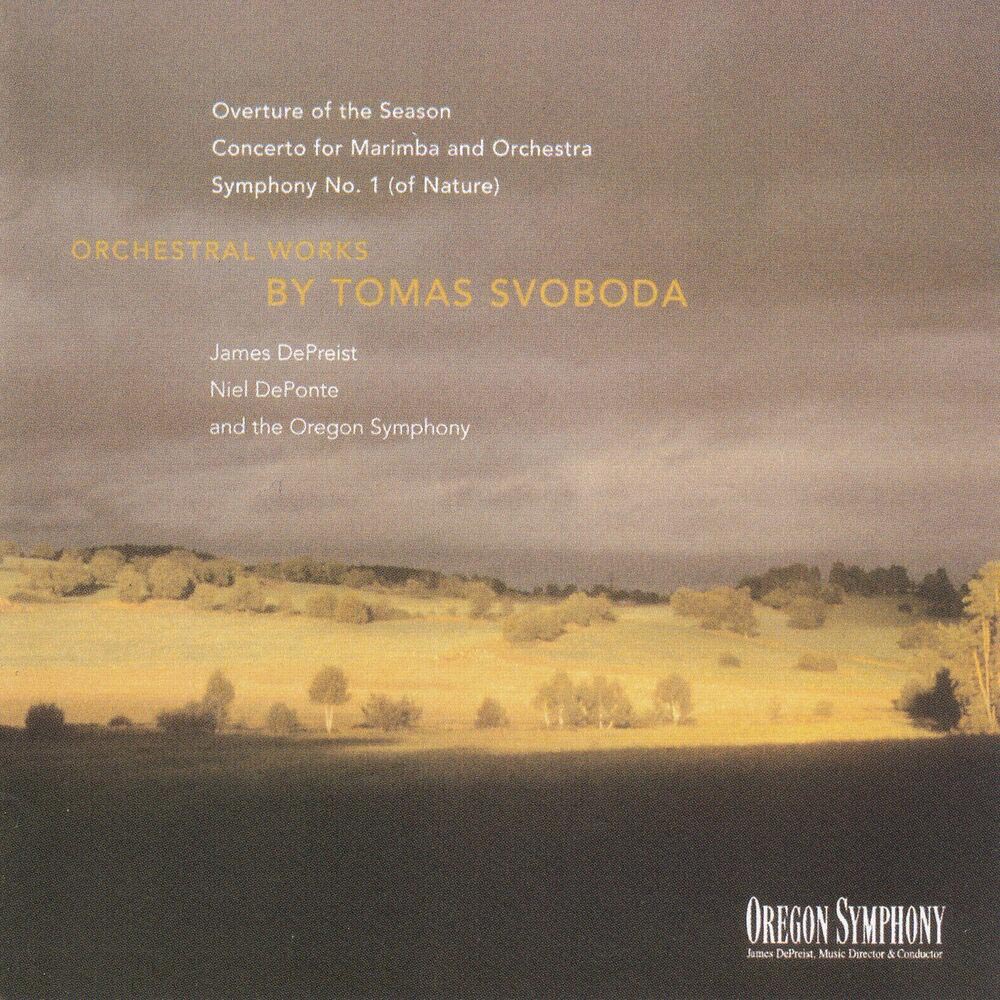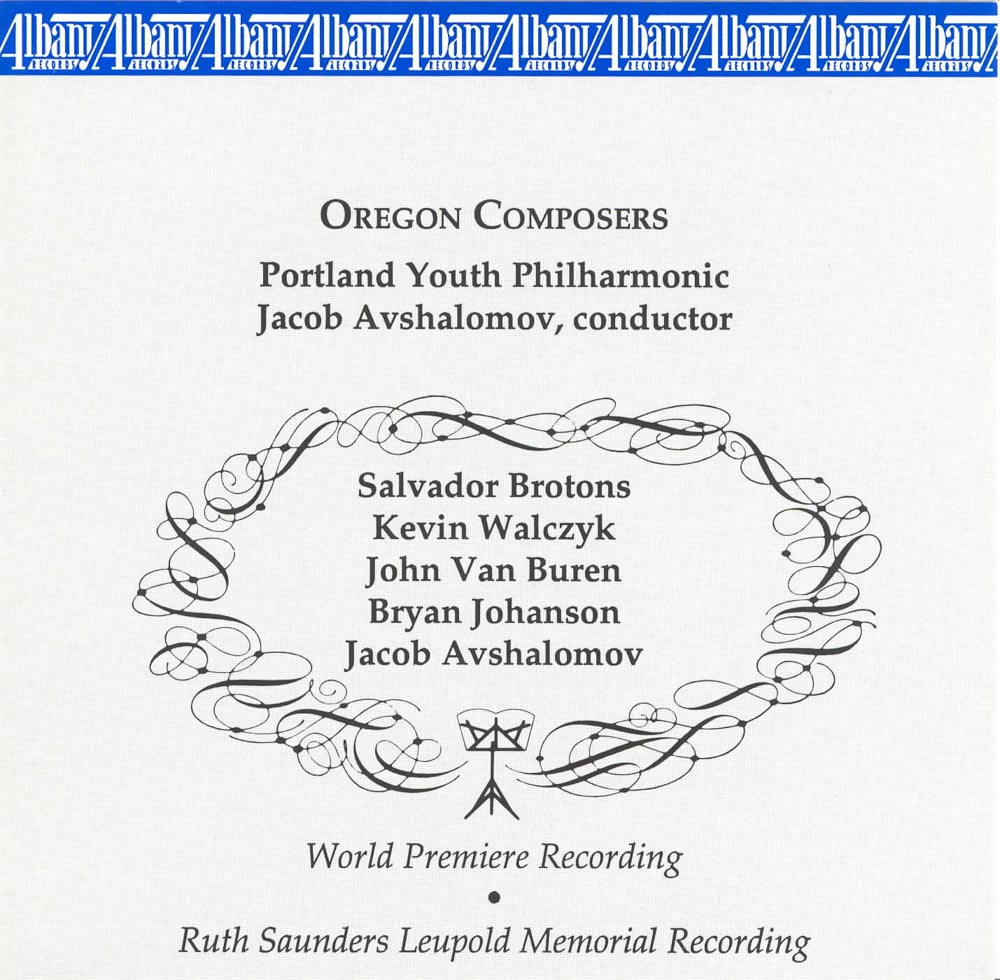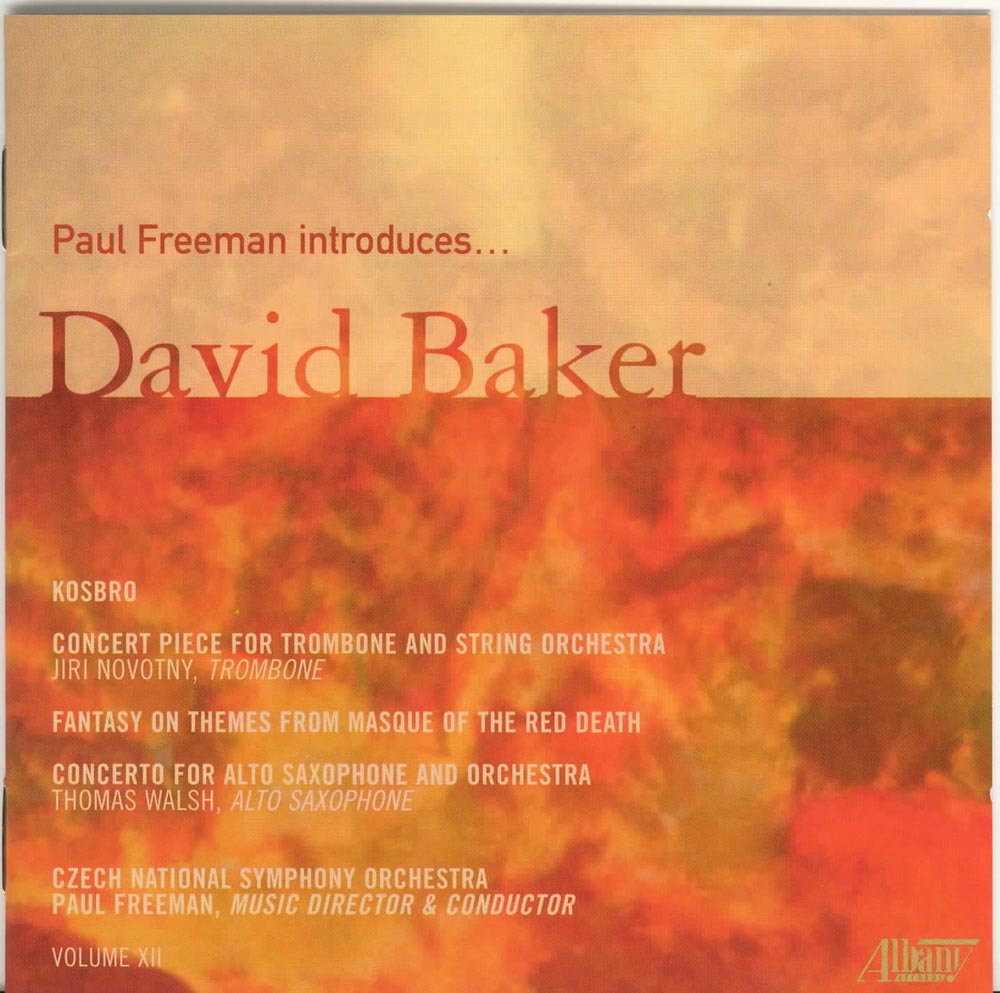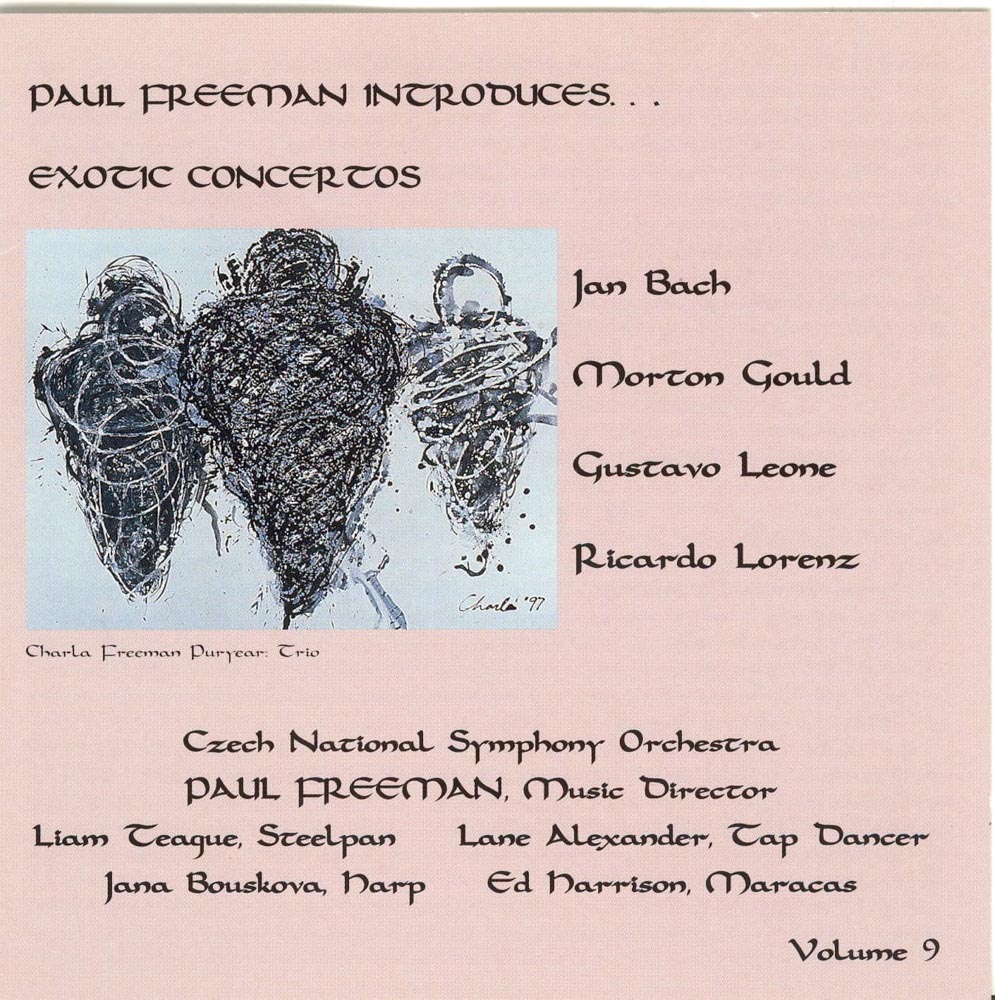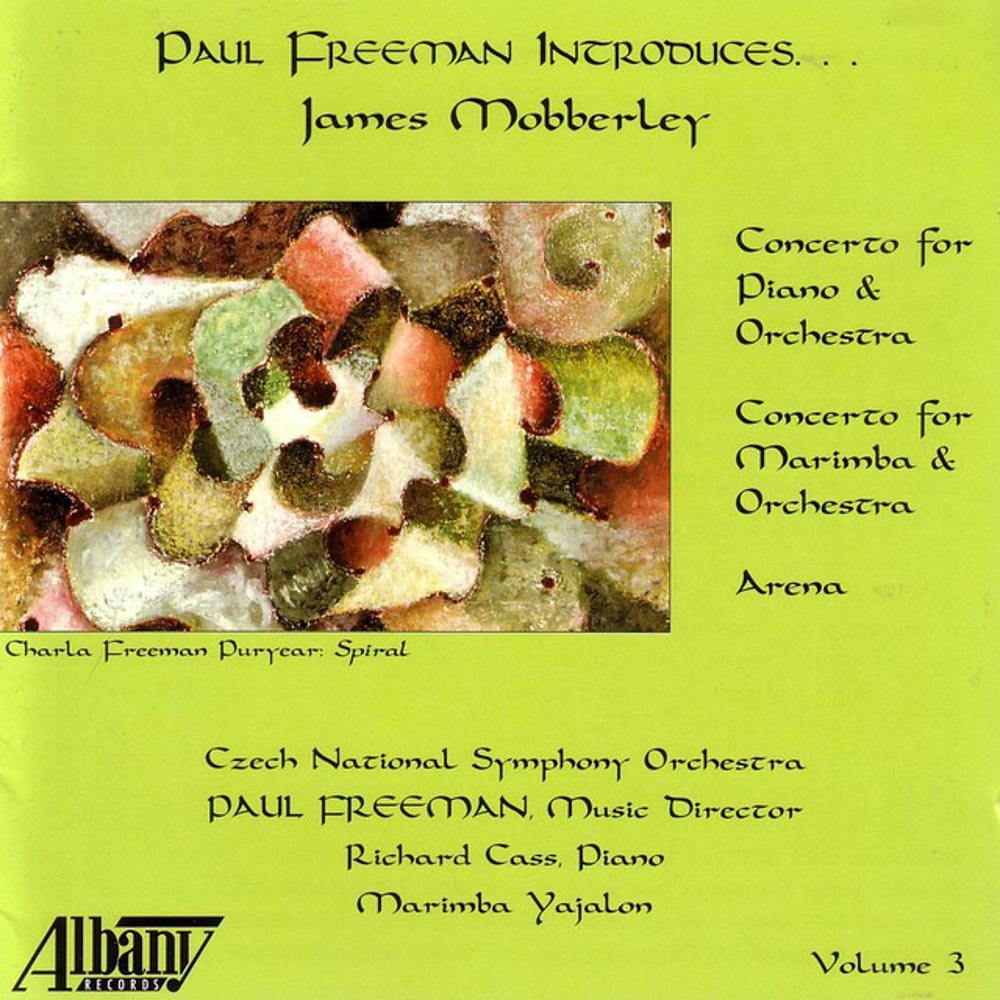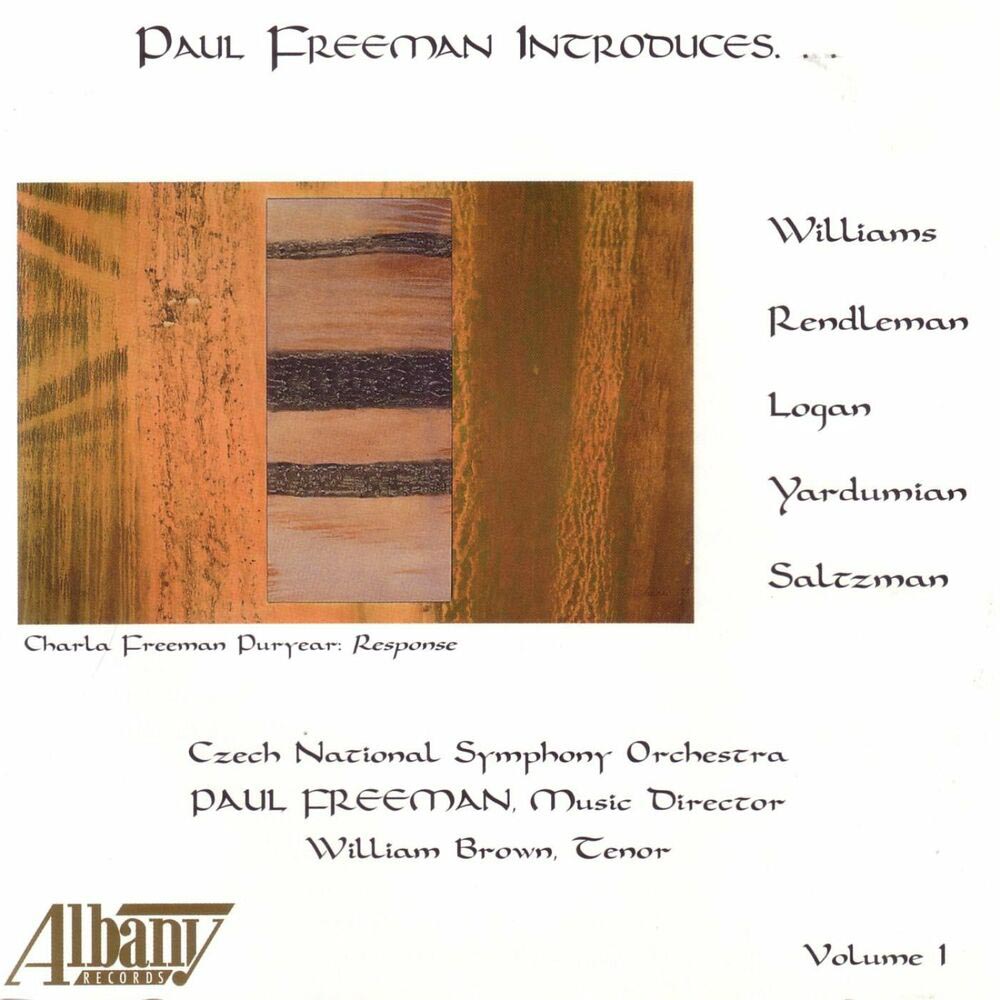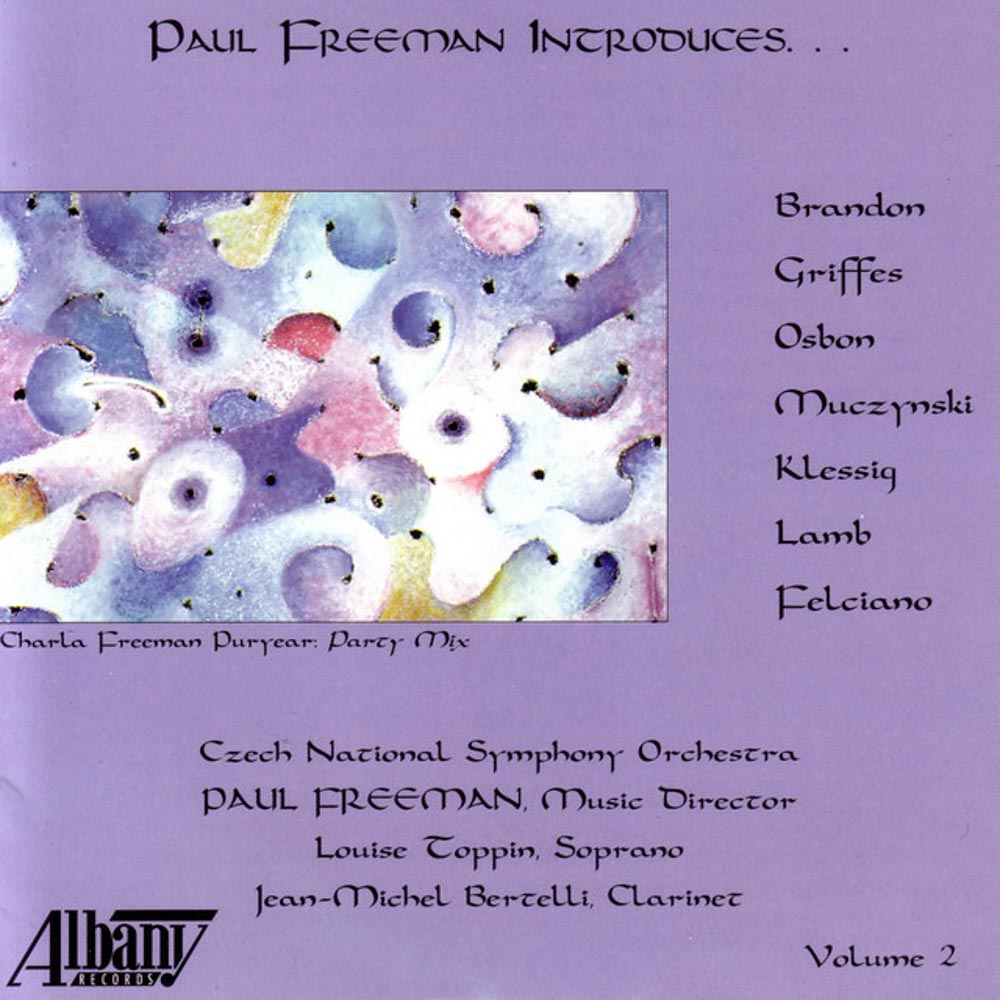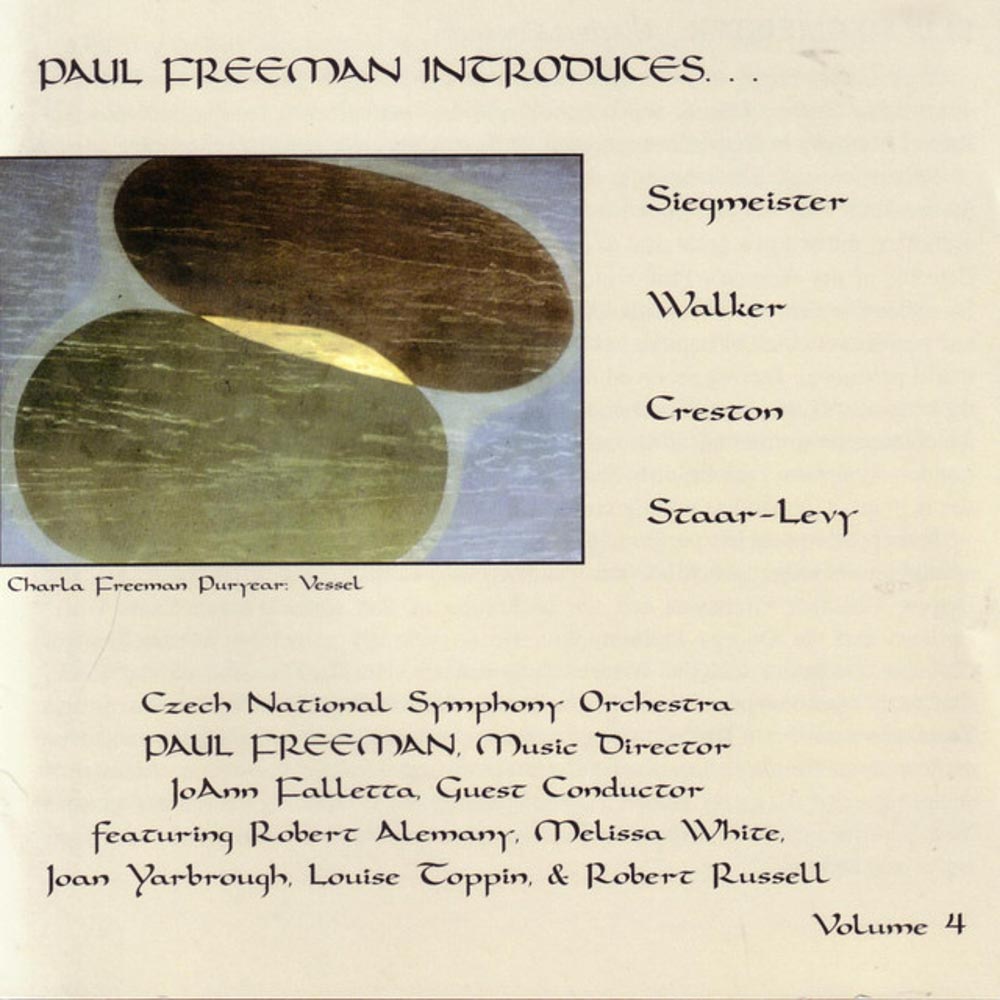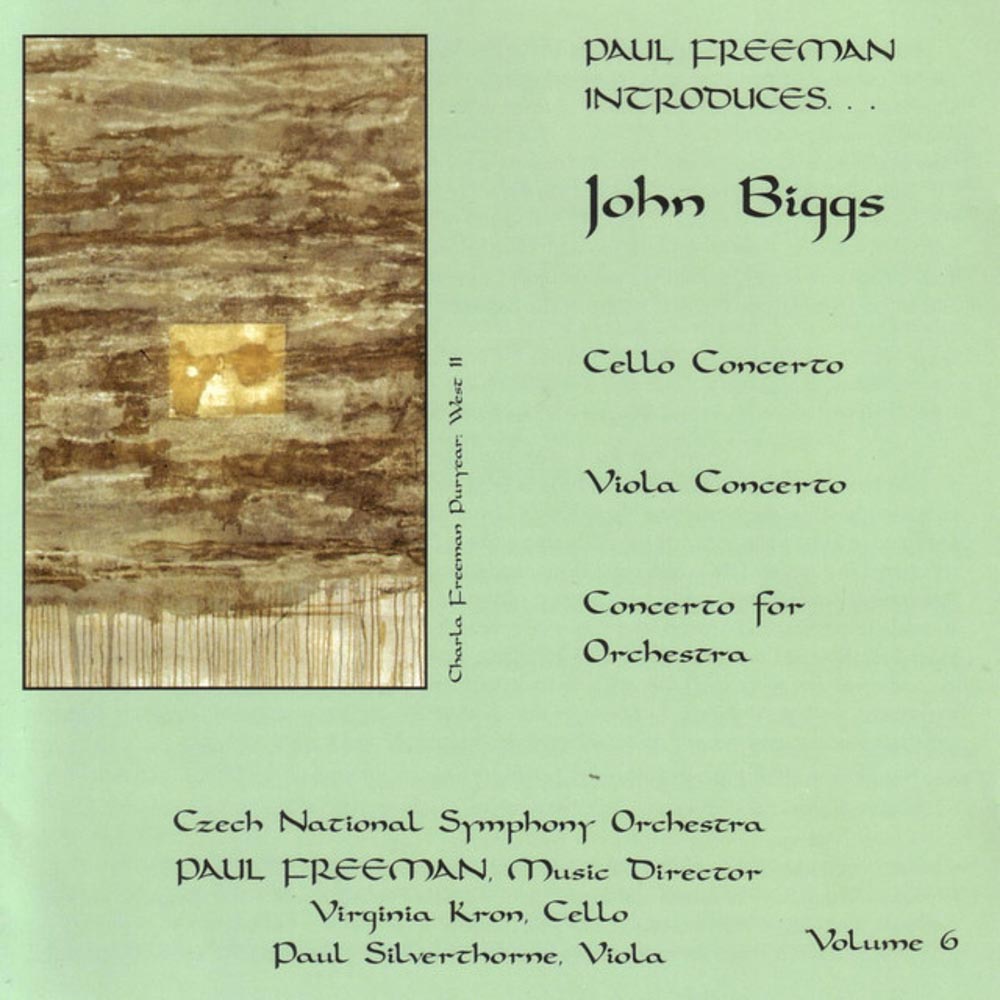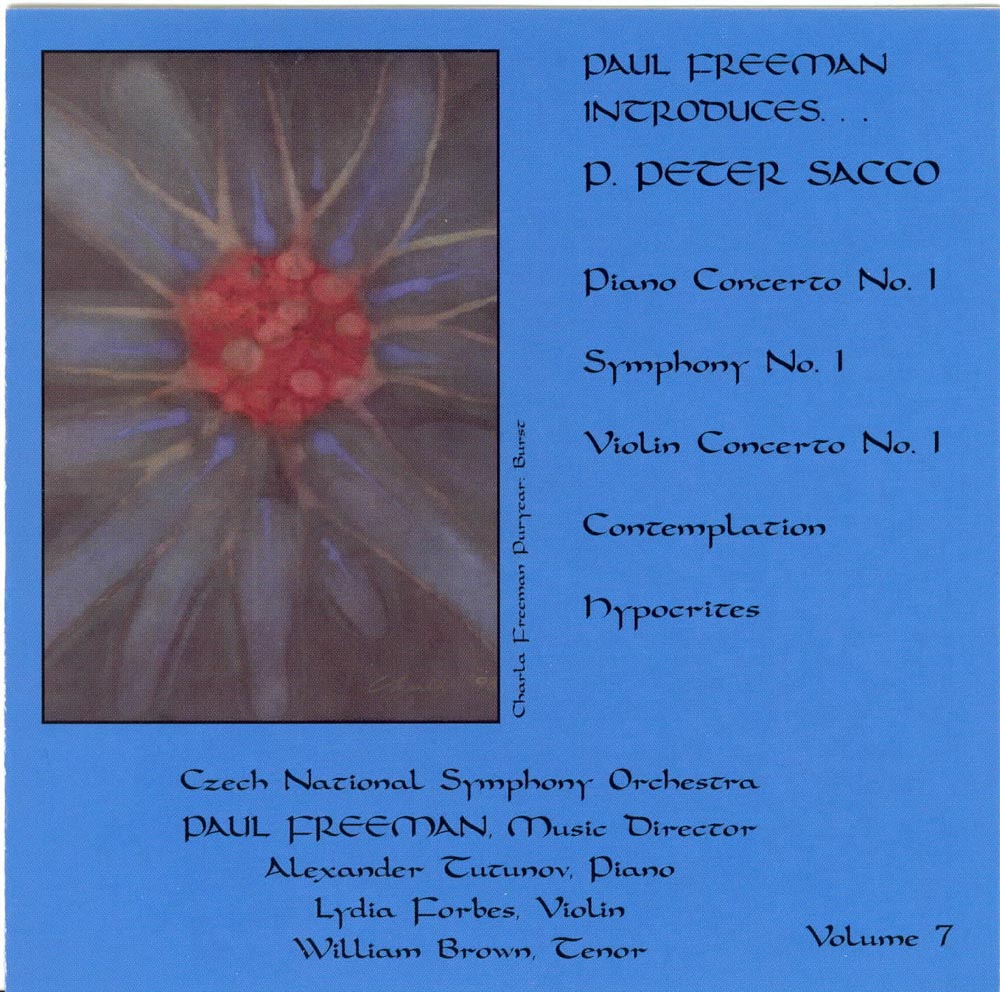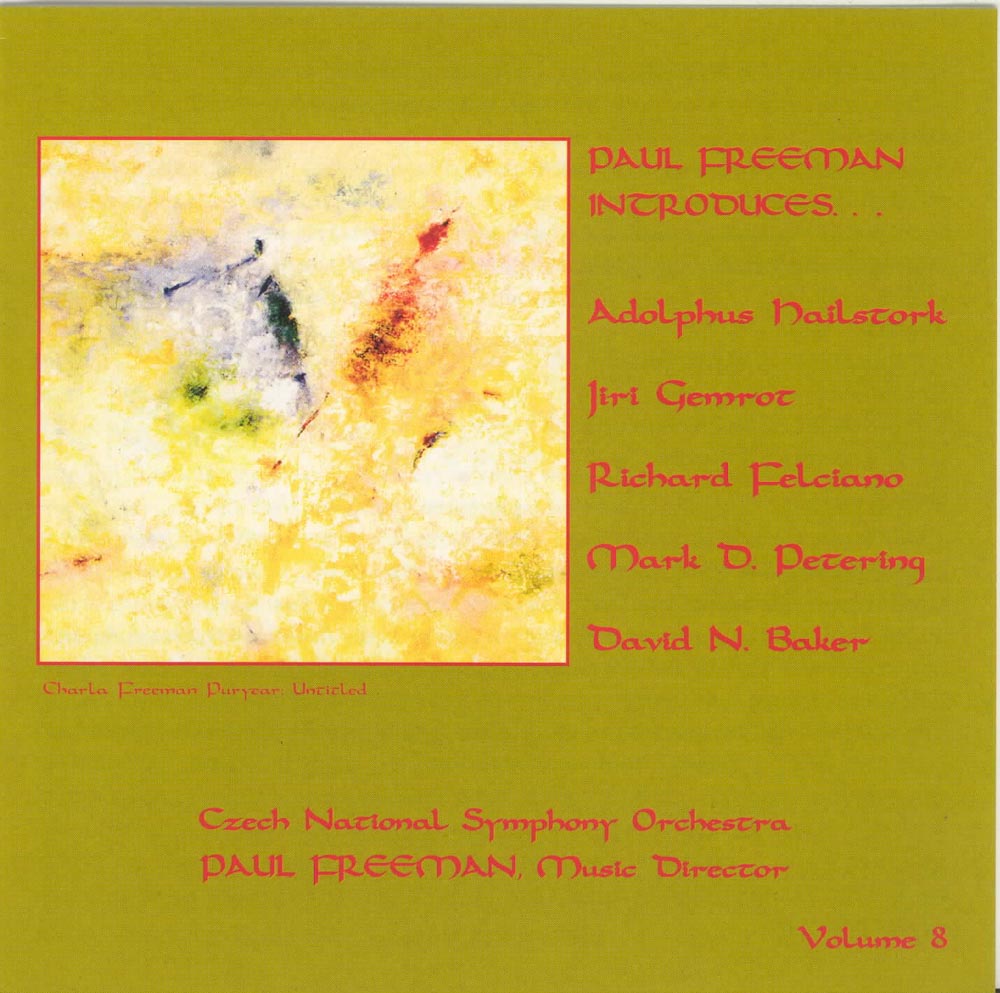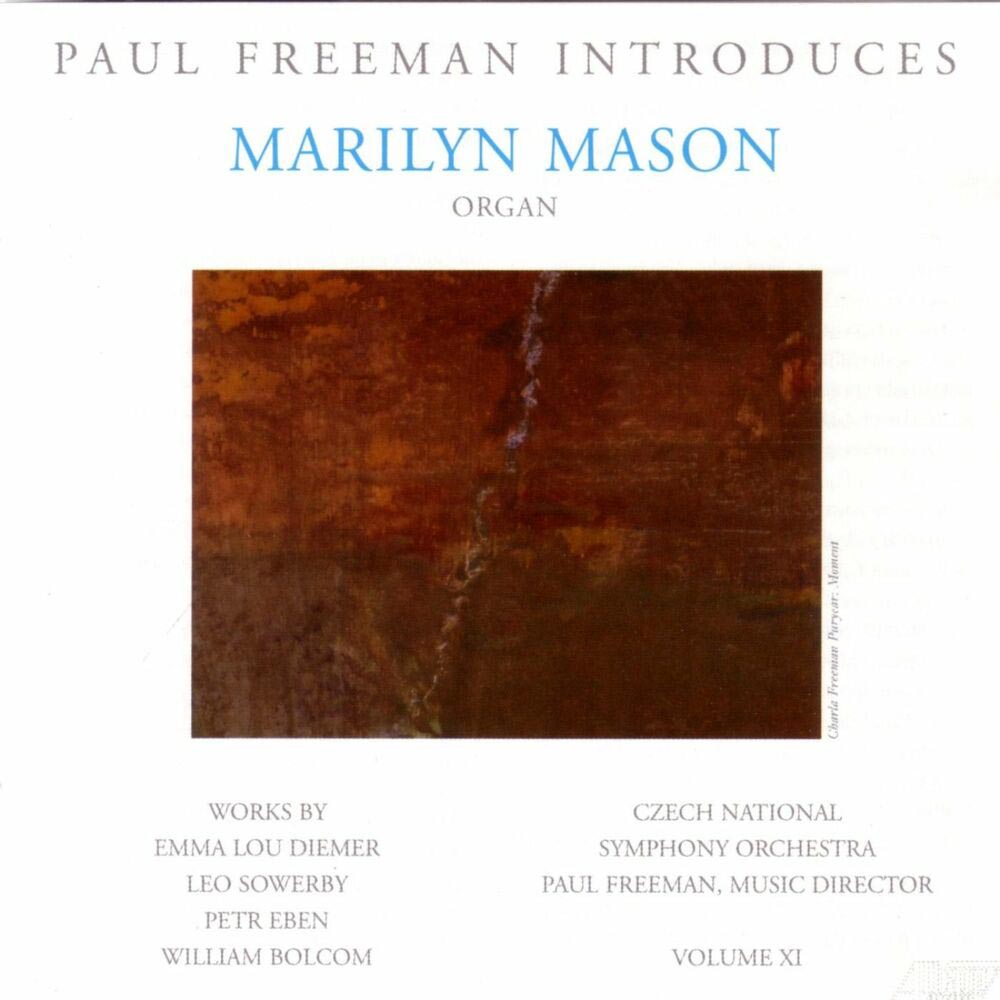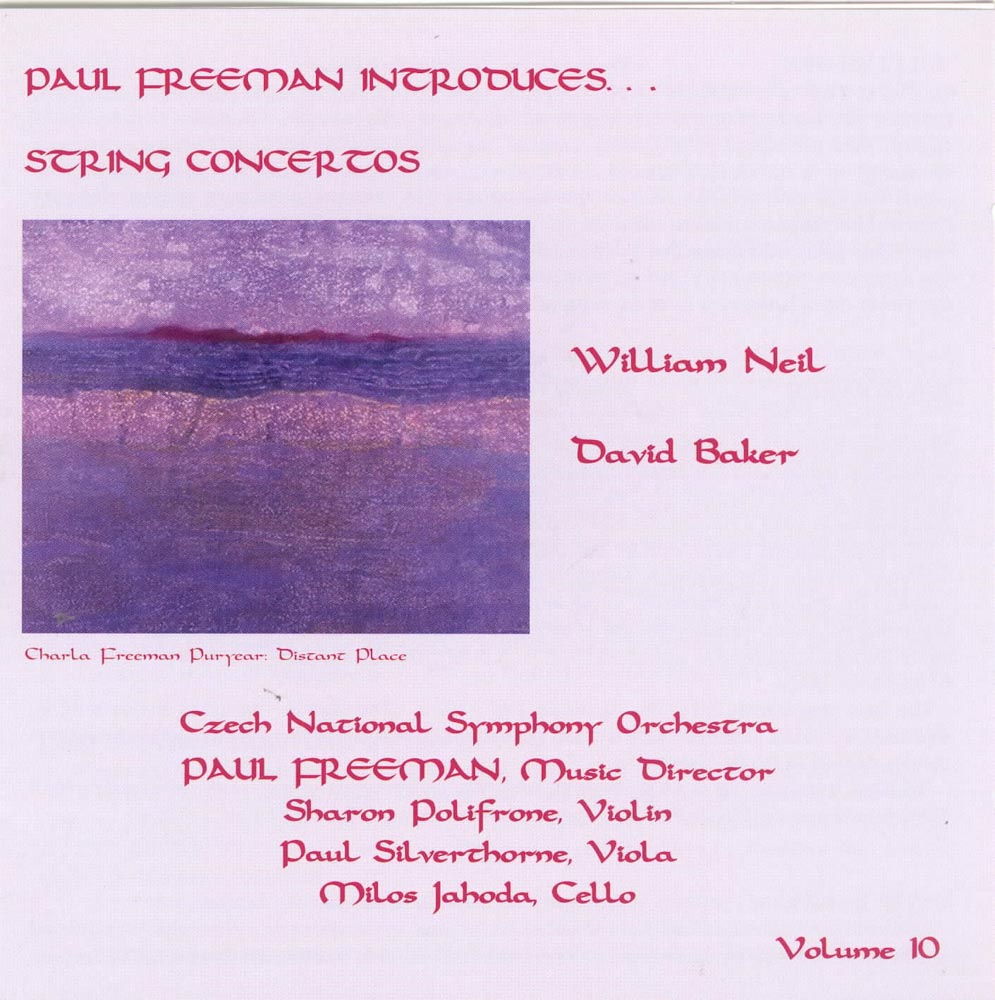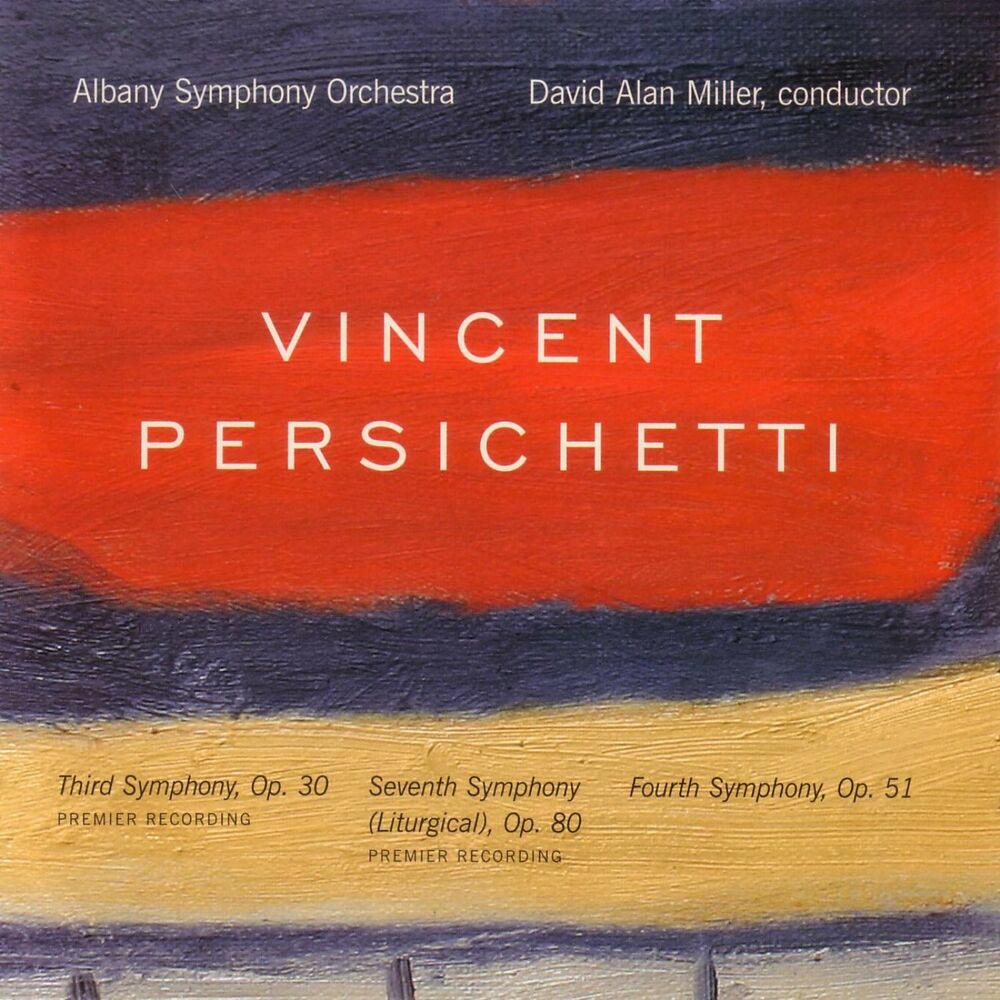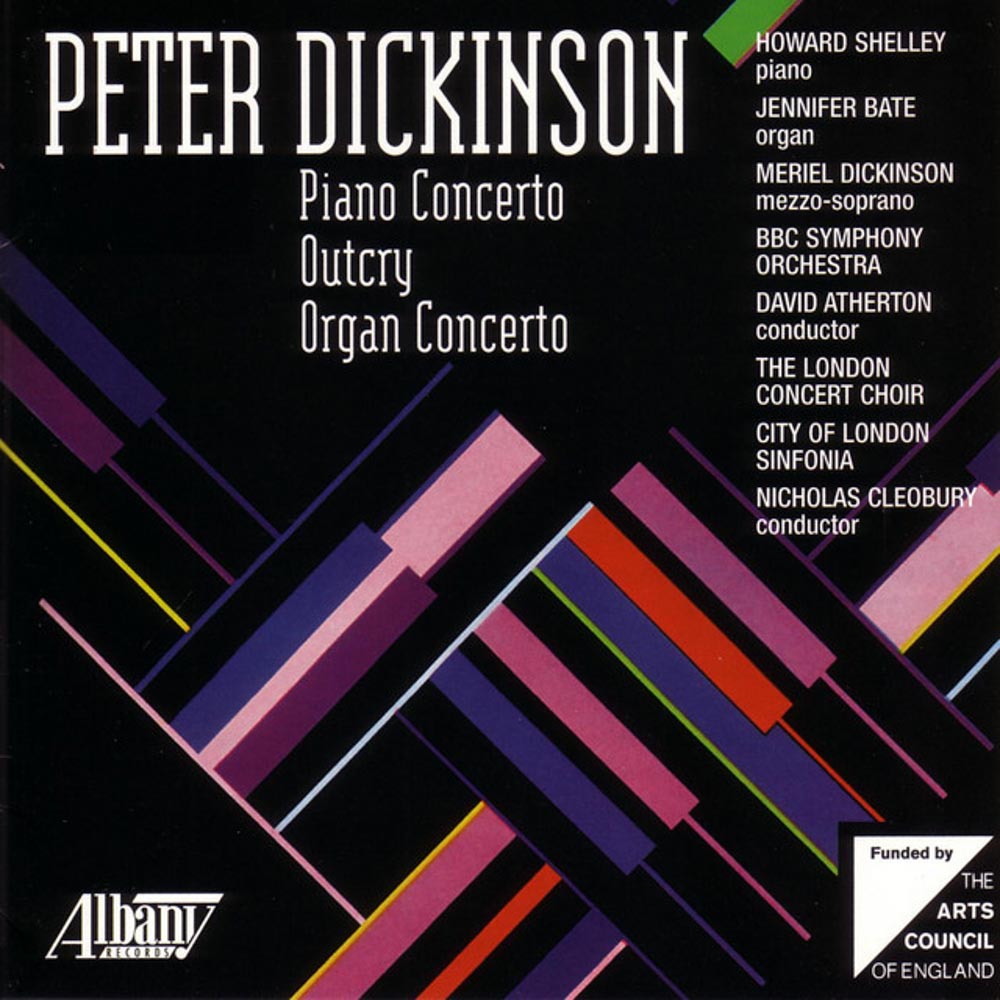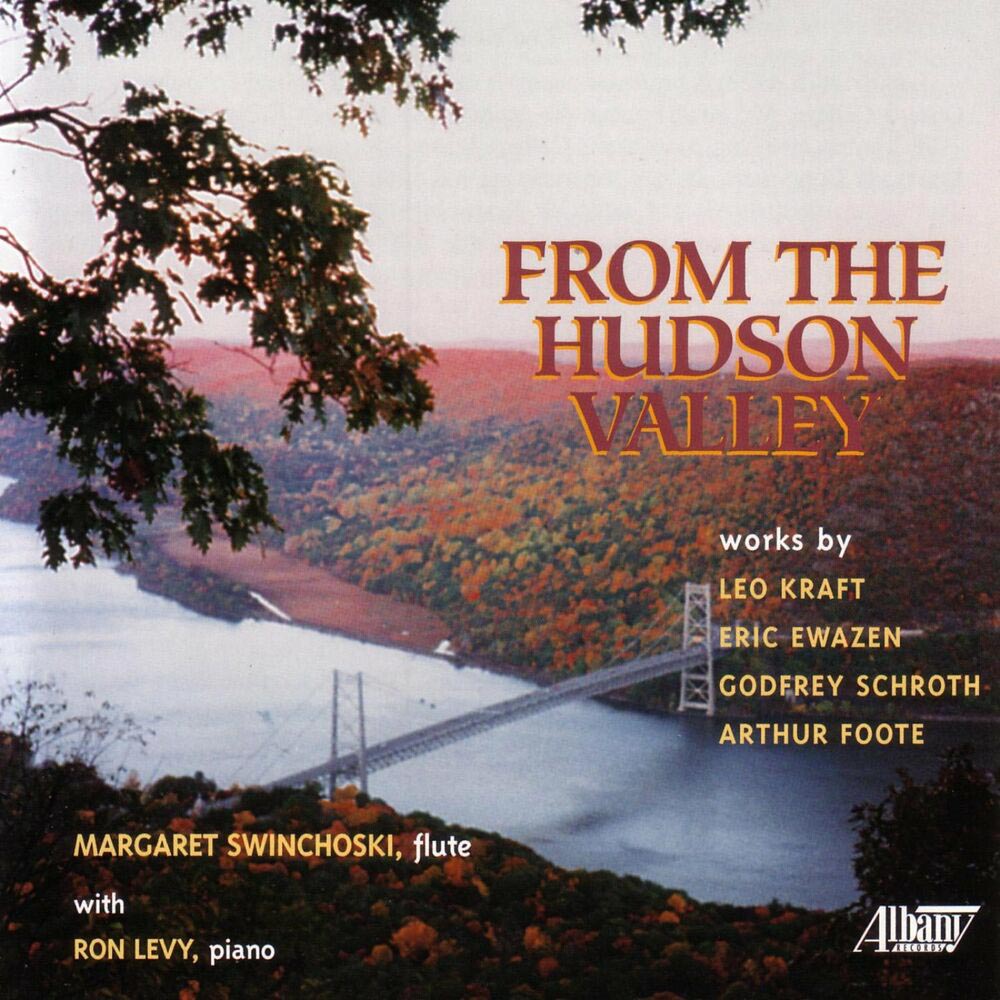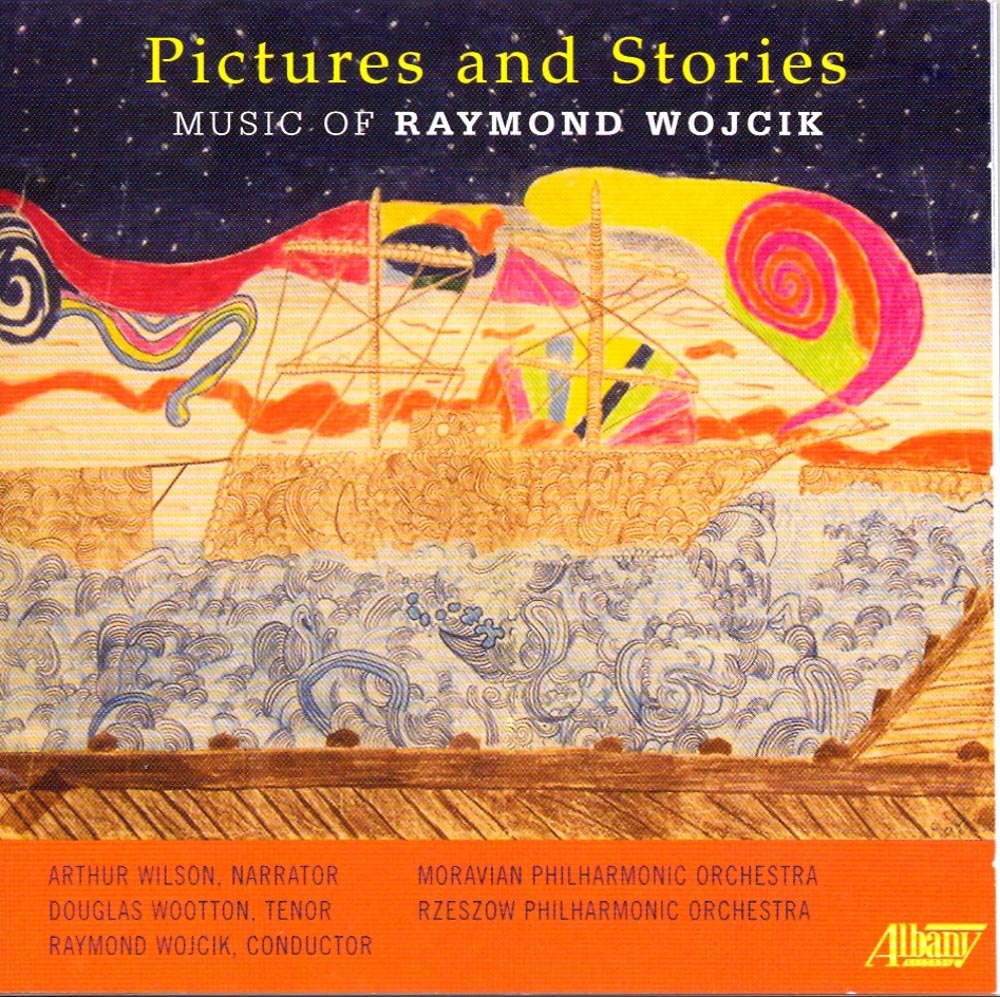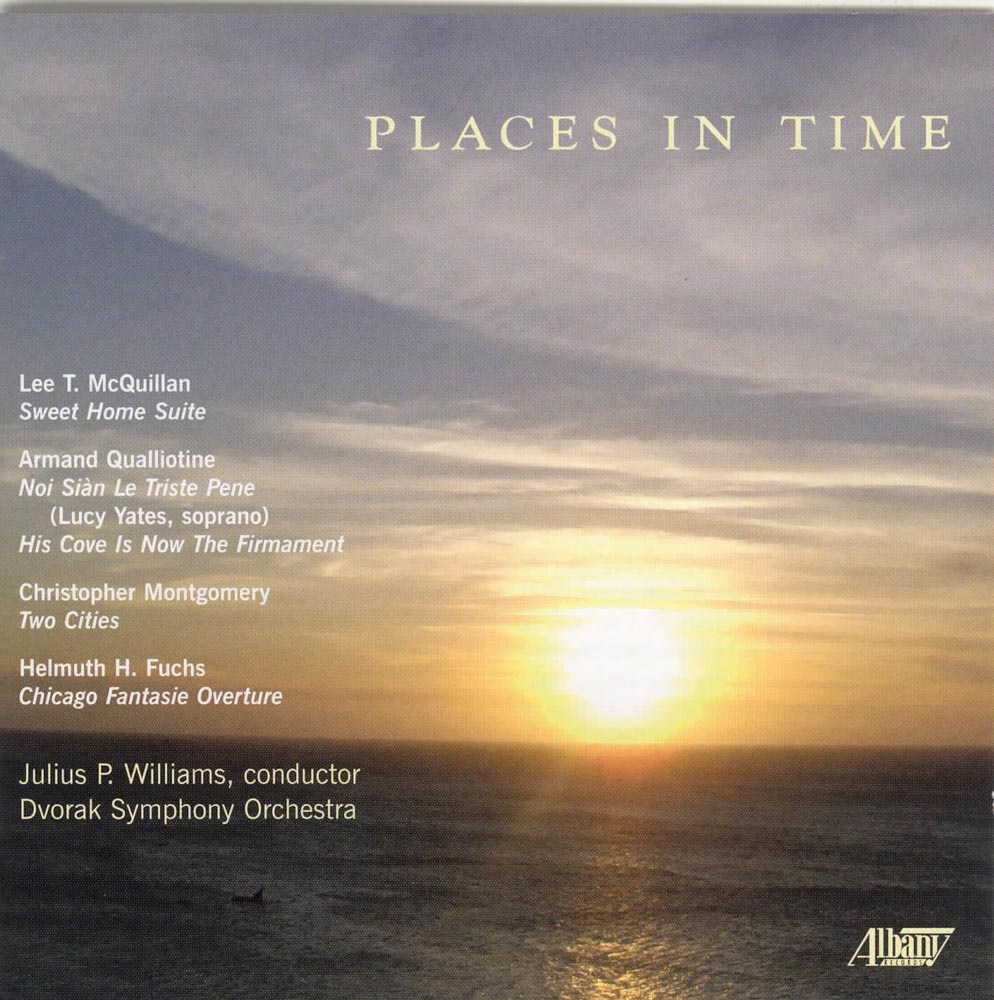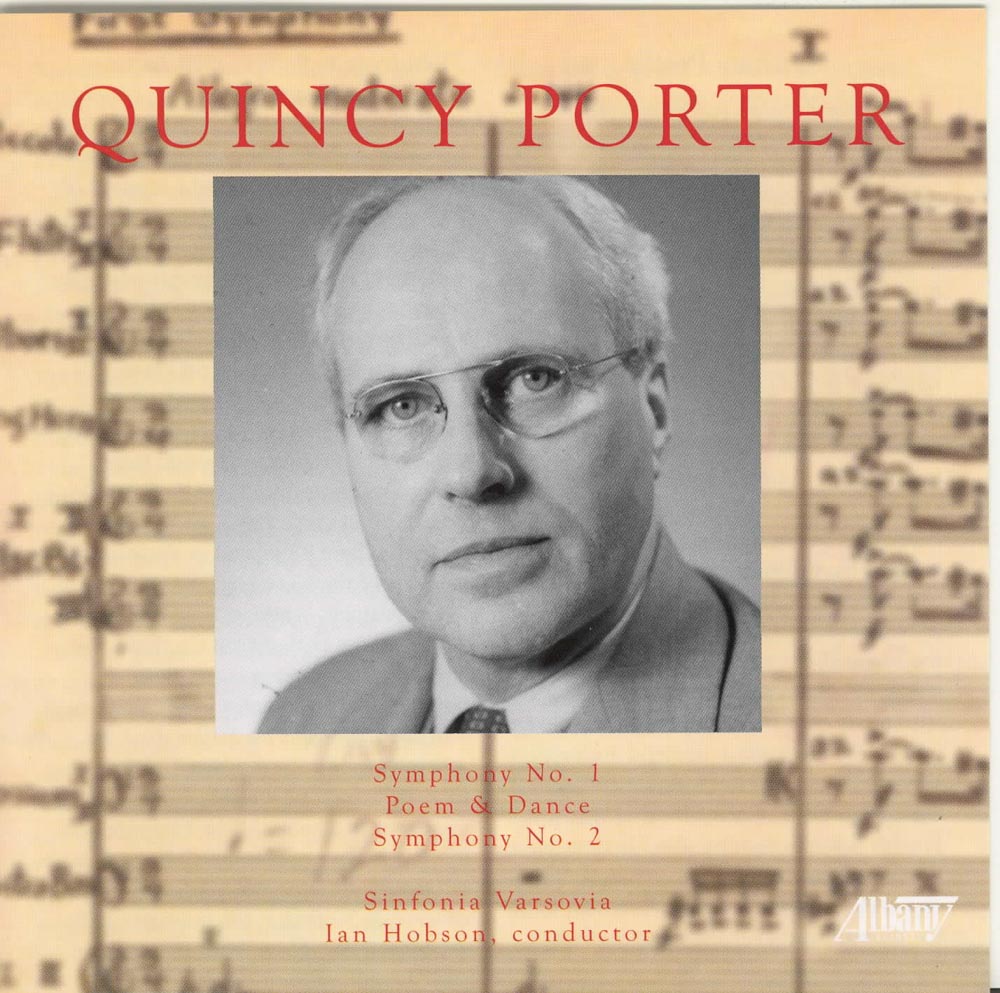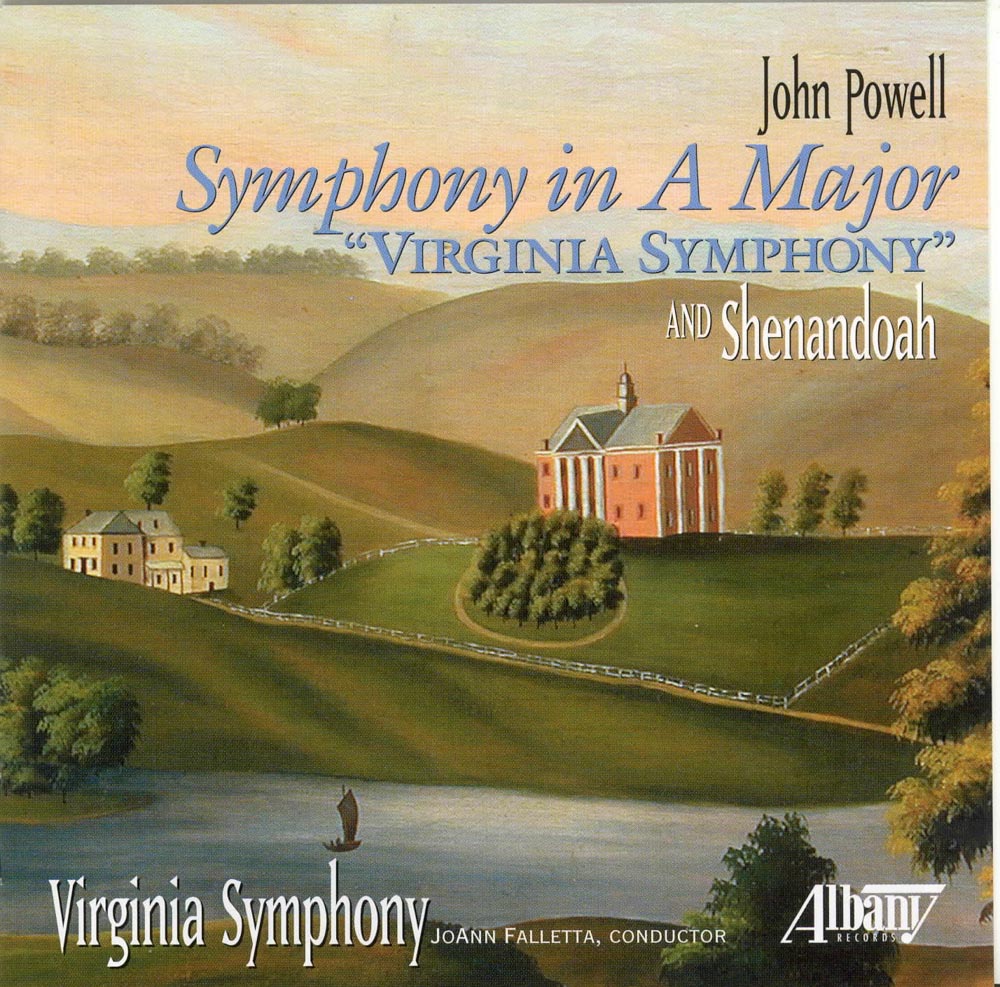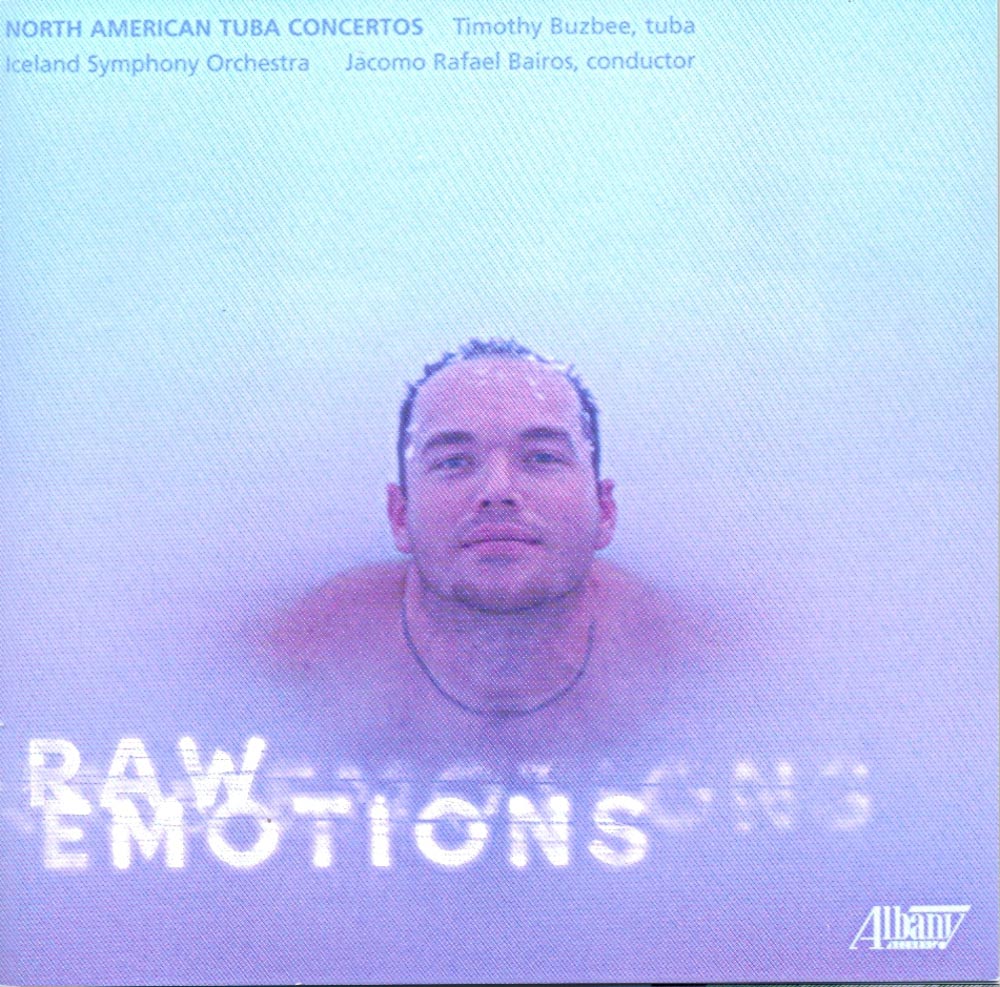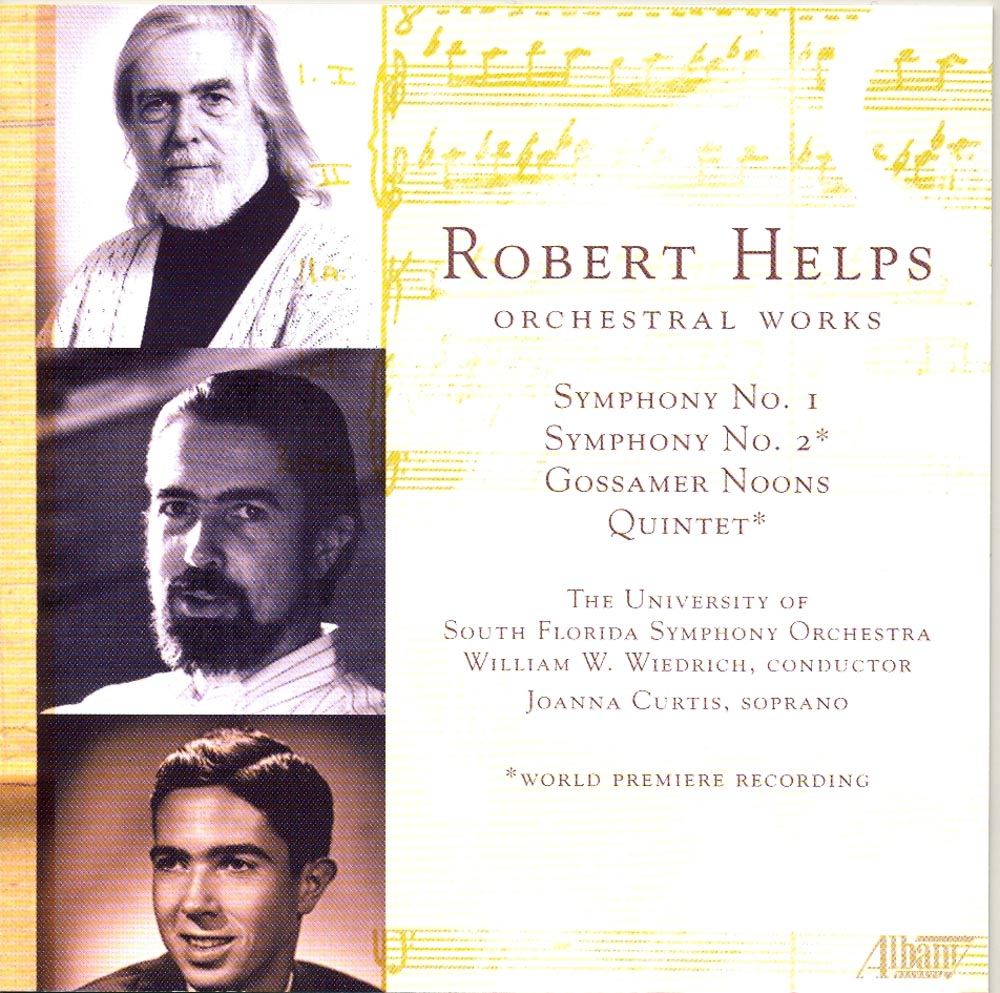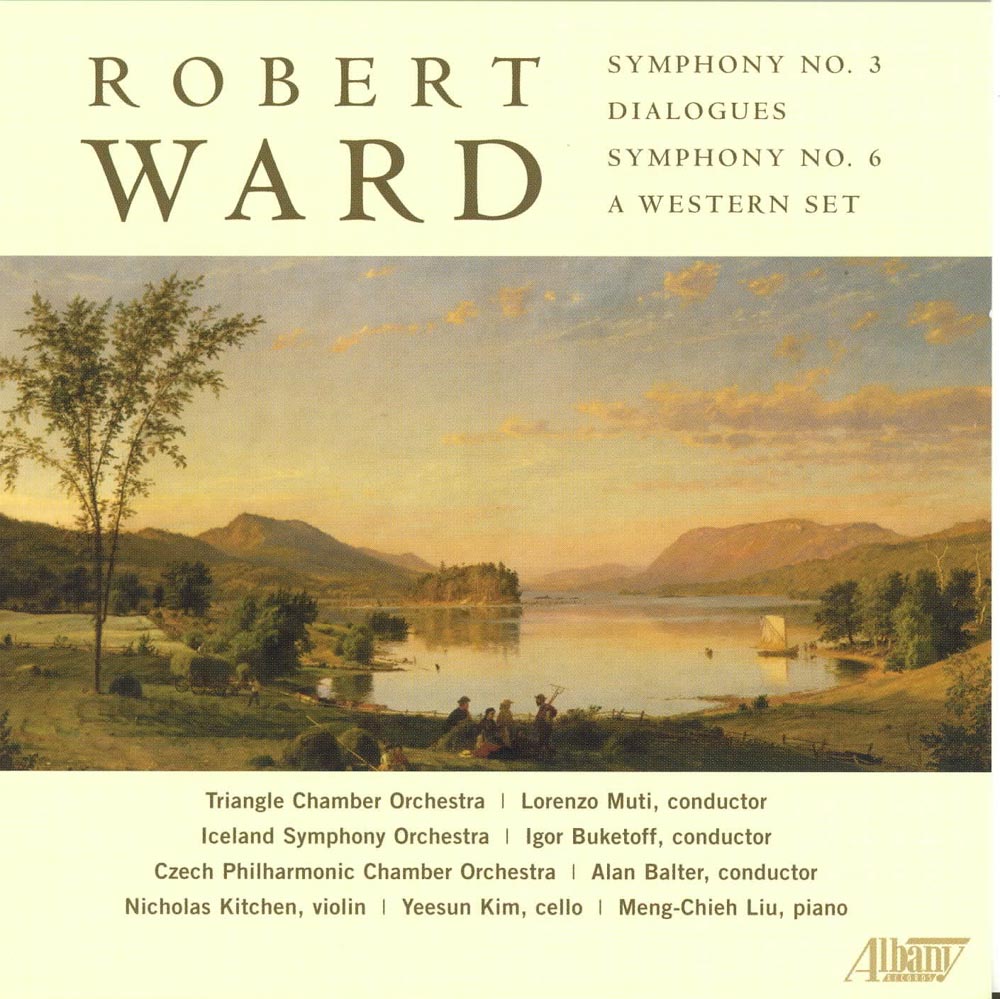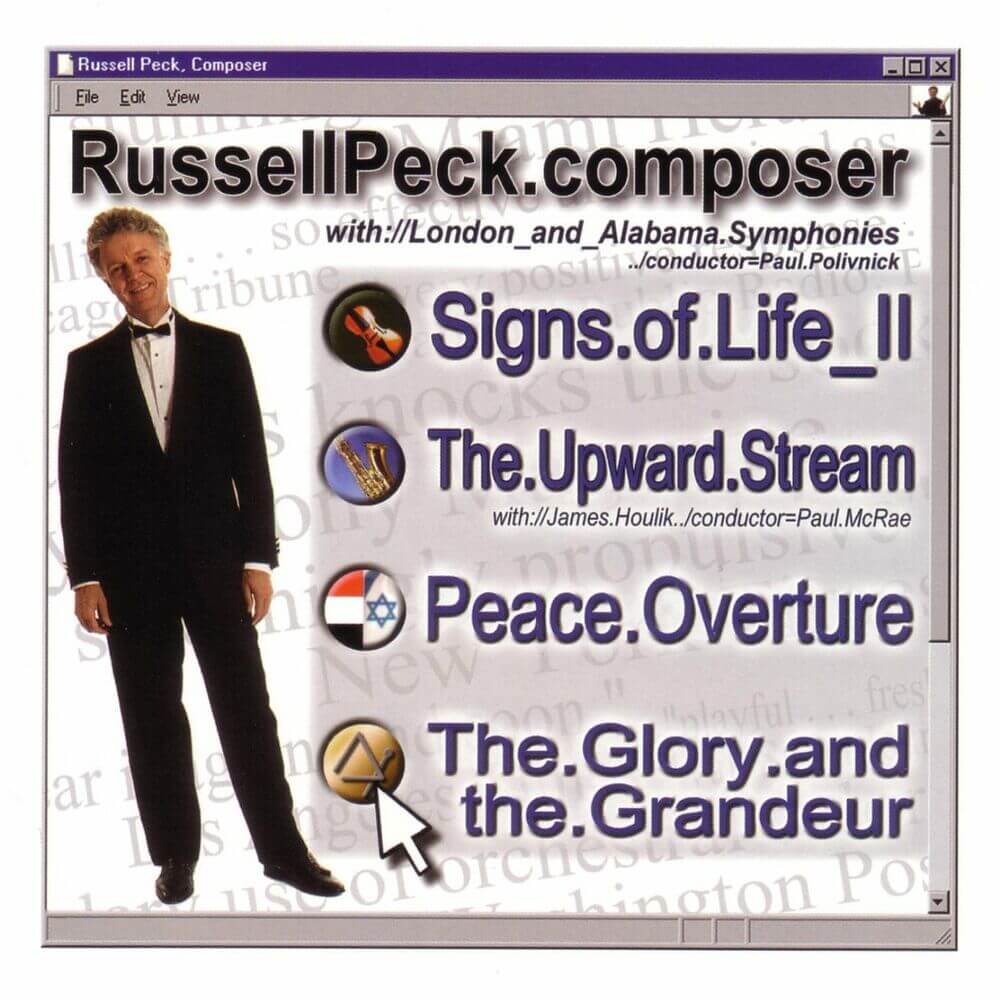Catalog #: TROY0223
Release Date: February 1, 1997OrchestralHere is a disc that makes a fine introduction to the music of an American composer whose name is most likely unfamiliar to you. Fisher Tull is as American as apple pie. He was born in Waco, Texas and died in Huntsville, Texas. After a brief sojourn with a traveling dance band, he entered the University of North Texas and earned three degrees; B. Mus. In music education, M. Mus. In music theory and a Ph.D. in composition having studied with Samuel Adler. He joined the music faculty at Sam Houston State University in 1957 and was appointed Chair of the Department in 1965, a position he held for 17 years. Most of his music is generally conservative and fairly traditional by contemporary standards, maintaining a clear tonal center spiced by carefully controlled dissonances. His Symphonic Treatise for Orchestra was conceived as a celebration for the 100-year alliance between the City of Waco and Baylor University and the silver anniversary of the Waco Symphony Orchestra. The Overture for a Legacy was commissioned by the Houston Symphony Orchestra and first performed on the Stokowski Legacy Series of concerts. The Capriccio was commissioned by the Houston Chamber Symphony and was first heard during the 1966-67 season. The Trumpet Concerto No. 1 received its first complete performance with James Austin, trumpet and Lawrence Foster conducting the Houston Symphony. "Doc" Severinsen later commissioned a Second Trumpet Concerto from Fisher Tull in 1974. This disc will be enjoyed by anyone who finds mainstream American music appealing.
Catalog #: TROY0604
Release Date: September 1, 2003OrchestralBorn in Paris of Czech parents, Tomas Svoboda spent the years of World War II in Boston where he began his musical education on the piano. Showing a early talent for composing, Svoboda completed his first opus, now published, at the age of 9. After his family's return to Prague in 1946, he continued his music studies entering the Prague Conservatory in 1954 as its youngest student. The premiere of the First Symphony (recorded on this CD) in 1957, performed by the Prague Symphony Orchestra conducted by Vaclav Smetacek, caused a sensation, for until Svoboda walked onto the stage to acknowledge the applause, many in the audience had not realized the 36-minute symphony had been composed by a 16 year old boy not yet even formally schooled in composition or orchestration. In 1962, after graduating from the Prague Conservatory with degrees in percussion, composition and conducting, Svoboda entered the Academy of Music in Prague. By this time, performances and radio broadcasts of his orchestral works had brought him national recognition, clearly establishing him as one of the finest young composers of his generation. In 1964, his family escaped communist-ruled Czechoslovakia and settled in the United States where Svoboda enrolled in the University of Southern California as a graduate student in 1966. His skills were already so far advanced that the department allowed him to forego the usual courses and study privately with Ingolf Dahl and Halsey Stevens, the Chairman of the Department, a composer and Bartok scholar. Stevens has written: "It was almost embarrassing to have him come to lessons with his work so completely and satisfactorily realized that it needed almost nothing in the way of criticism." After receiving a master's degree in 1969, Tomas Svoboda accepted a teaching position at Portland State University in Oregon where he taught composition and music theory. He retired from active teaching duties in June 1999.
Catalog #: TROY0115
Release Date: May 1, 1994OrchestralWith this handful of works by composers with Oregon connections, the Portland Youth Philharmonic re-enters the lists of Northwest recording orchestras - among whom it was the first. In the '60s and '70s the Philharmonic recorded 10 works by eight composers on the CRI label - to good press and public reception. Six of those pieces had been commissioned by the Philharmonic under a grant from the Rockefeller Foundation. The rationale at the time was that young musicians could be the best proponents for new music except that often it was beyond their reach technically. To meet this problem, the Philharmonic invited composers to produce works that were a little less difficult but still true to their own style. This recording was made to celebrate the Philharmonic's 70th Anniversary and continue the commitment to contemporary music. Composers whose works receive world premiere recordings on this disc are Salvador Brotons, Kevin Walczyk, John Van Buren, Bryan Johanson and Jacob Avshalomov.
Catalog #: TROY0843
Release Date: June 1, 2006OrchestralThis is volume 12 of the ongoing series Paul Freeman Introduces... where one of today's most innovative conductors presents exciting and fascinating new music for orchestra. Throughout this series he has presented several works by the outstanding African-American composer David Nathaniel Baker (a previous all-Baker disc is on TROY377). A native of Indianapolis, Baker holds the position of Distinguished Professor of Music and Chairman of the Jazz Department at the Indiana University School of Music. Among his teachers have been J.J. Johnson, Bobby Brookmeyer, Janos Starker, William Russo, Bernard Heiden and Gunther Schuller. Not surprising, Baker is equally at home in both classical and jazz performing and composing. He is highly prolific, with more than 2000 works to his credits and over 500 commissions from renowned individuals and ensembles. Kosbro (an acronym for "Keep on Steppin,' Brothers") is a perfect example of his style: propulsive, jazzy, rich in harmony and hard-hitting. His music can also be highly lyrical and memorably melodic, as in the "third-stream" Alto Saxophone Concerto. This is truly dynamic American music.
Catalog #: TROY0521
Release Date: September 1, 2002OrchestralThis recording brings together some wonderful concertos for orchestra and unusual instruments, most of which are first recordings. The solo part of Jan Bach's Steelpan Concerto was actually written for soprano pan, a steel instrument that usually plays the primary part in the Caribbean steel bands. The work was composed in 1994 for Liam Teague, a young musician from Trinidad whose musicianship inspired the work. Morton Gould's Concerto for Tap Dancer and Orchestra, written in 1952, brings together Gould's flare for Americana and his passion for dance. Inspired by the percussive quality of the tap medium, Gould's concerto is typically inventive in mixing musical tradition with modern American culture. Leone's Harp Concerto was commissioned and premiered in 1994 by Concertante di Chicago with Elizabeth Cifani as soloist. Like all his music, it is influenced by the popular music of Latin America where he grew up. Ricardo Lorenz was born in Maracaibo, Venezuela in 1961 and is considered one of the most prominent Venezuelan composers of his generation. Playing the maracas in Venezuela has developed into a highly virtuosic art form that is considered by connoisseurs as one of the world's most sophisticated vernacular percussion techniques. One of these connoisseurs is Chicago's Lyric Opera percussionist Ed Harrison, for whom the concerto was composed. Harrison learned to play the maracas in the typical Venezuelan style during his tenure as percussionist of the Orquesta Filarmonica de Caracas.
Catalog #: TROY0335
Release Date: July 1, 1999OrchestralBorn in Des Moines, Iowa, James Mobberley was raised in Pennsylvania. He earned his Master's Degree at the University of North Carolina and his Doctorate at the Cleveland Institute of Music where he studied composition with Donald Erb and Eugene O'Brien. He began teaching composition and electronic music in 1981, and since 1983 has been on the composition faculty of the Conservatory of Music at the University of Missouri-Kansas City. In 1991, he was named the Kansas City Symphony's first Composer-in-Residence. His Piano Concerto was composed for Richard Cass and the Kansas City Symphony and was premiered the same year with William McGlaughlin conducting. The Concerto for Marimba (eight hands) and Orchestra was written for Laurence Kaptain and Marimba Yajalon, an ensemble of four percussionists who perform on an authentic folk instrument indigenous to Chiapas, the southernmost state of Mexico. The most unusual and characteristic quality of this instrument is the buzzing sound created by the kazoo-like membrane at the bottom of each resonator, creating a sound unlike that of any other mallet instrument. The composer writes about Arena : "Arena is the result of approximately two years of collaboration between choreographer Todd Bolender and me. Our discussions ranged from topics on spirituality to politics, from the poetry of T.S. Eliot to the paintings of Anselm Kieffer, from jazz to Stravinsky, and from George Balanchine to Martha Graham. Arena evolved slowly from our discussions into reality. The result is a work which suggests rather than describes, which evokes emotions rather than portrays actions, and which mixes despair and redemption in equal measure through the use of cyclical forms."
Catalog #: TROY0312
Release Date: November 1, 1998OrchestralJames Kimo Williams is a versatile composer who has written both serious and commercial works. He is a faculty member of Columbia College in Chicago and writes the following: "Fanfare for Life was commissioned by AT&T and premiered May 6, 1994 by the Chicago Sinfonietta at Orchestra Hall in Chicago under the baton of Paul Freeman. I composed this work in direct response to the outgrowth of gang violence during that same year." Richard J. Rendleman, Jr. was born in 1949 in Salisbury, North Carolina and holds a Ph.D. in Business Administration from the University of North Carolina at Chapel Hill where he currently serves as Professor of Finance. At age 32, he began studying with the Pulitzer Prize winning composer, Robert Ward. As a result has written a number of works for piano, chorus, Chamber ensemble and Orchestra. "October 9, 1943 serves as the second movement of my First Symphony, completed in 1997. The music is based on a poem of the same title by my grandfather's cousin, Margaret Proctor Wood. The Chamber version of Runagate, Runagate was first performed at the National Black Arts Festival in Atlanta in 1990. Subsequently, the Orchestral version was premiered by the Savannah Symphony in 1994 with William Brown for whom the work was written. Wendel Logan is on the faculty of Oberlin College. "The text and title of my composition are based on Robert Hayden's collage poem "Runagate, Runagate," which was taken from the collection Angle of Ascent (1975). Richard Yardumian's (1917-1985) Chorale-Prelude Veni, Sancte Spiritus was premiered by Eugene Ormandy and the Philadelphia Orchestra on April 3, 1959 and performed over 100 times during his tenure. Peter Saltzman has written extensively for dance and theatre groups as well as for Orchestra. He is very active in the Chicago musical scene and writes the following: "I wrote Walls during a three week period in December, 1995 and January, 1996. It was commissioned by Kevin Iega Jeff, choreographer of the Dallas Black Dance Theatre, which premiered a synthesized version of the work in February, 1996."
Catalog #: TROY0322
Release Date: March 1, 1999OrchestralSy Brandon is Professor of Music at Pennsylvania's Millersville University. His Celebration Overture was composed in 1995 in honor of WITF-FM's 25th anniversary and was selected as the winning composition in a contest held by the station. David Osbon was born in Reading, England in 1963 and studied composition in Great Britain. He received his Ph.D. from the University of Pennsylvania. Composed as a concert overture, Liberty is a deliberately ironic and ambiguous title for a work that reflects the composer's mixed reactions to life in Philadelphia. Celebrating his 70th birthday this month, Robert Muczynski grew up in Chicago and studied composition with Alexander Tcherepnin. He served as Professor at the University of Arizona for many years and now resides in Tucson. Written at the suggestion of Howard Mitchell, Symphonic Dialogues is dedicated to him and the National Symphony Orchestra. Richard Klessig studied jazz piano in New York City and graduated from the Berklee College in 1992. Meditation from Don Juan is taken from the third act of his 1996 ballet Don Juan which was composed for the twenty-fifth anniversary season of Ballet Oklahoma. Marvin Lamb is the Dean of the College of Fine Arts at the University of Oklahoma at Norman. A native of California, Richard Felciano is a Professor of Music at the University of California, Berkeley, where he is also the founder of the Center for New Music and Audio Technologies. This disc features spoken introductions to the music by Mr. Freeman and as with the first disc in this series, the performances of this music are well rehearsed and recorded.
Catalog #: TROY0356
Release Date: November 1, 1999OrchestralElie Siegmeister received his B.A. from Columbia University. He studied with Wallingford Riegger, Nadia Boulanger and at Juilliard. The Clarinet Concerto, a delightful piece, reflects the composer's involvement with Broadway theatre and his interest in a type of personalized jazz. Gwyneth Walker is a rarity among composers, in that she supports herself entirely by her writing. Her catalog contains over 100 commissioned works. Her artistic and personal goal is to provide music "where it is needed and will be enjoyed." She lives on the Brainstorm dairy farm in Braintree, Vermont, surrounded by more than 200 Holstein cows. Paul Creston's Fantasy for Piano and Orchestra was completed in September, 1942 and was first performed by the High School of Music and Art Orchestra at Carnegie Hall. This is its first recording. Just an Accident? was first written as a Chamber work, commissioned by the Festival of New Music in Wiener Neustadt, Austria for the Webern Centennial in 1983. As a symphonic work for full orchestra it was premiered in America in 1986 with Philippe Entremont and the New Orleans Philharmonic.
Catalog #: TROY0394
Release Date: October 1, 2000OrchestralJohn Biggs was born in Los Angeles. He received his Master's Degree in composition from the University of California at Los Angeles. He also studied in Belgium. His teachers were Roy Harris, Lukas Foss, Ingolf Dahl, Flor Peeters and Halsey Stevens. As an educator, he has taught at Los Angeles City College, UCLA, UC Berkeley and served as composer-in-residence to six colleges in Kansas under a grant from the Department of Health, Education and Welfare. As a performer he founded the John Biggs Consort, which toured internationally under Columbia Artists Management, specializing in medieval, renaissance and 20th century music. Paul Freeman writes: "I was particularly struck by the similarity of approach between Biggs and that of the Baroque era. His feel for tone color, Orchestration, counterpoint and compositional form in general is indeed very strong. The unusually cheerful brightness of the cello concerto is a good contrast to the more austere and penetrating viola concerto."
Catalog #: TROY0410
Release Date: February 1, 2001OrchestralP. Peter Sacco was born into an intensely musical family in Albion, N.Y. A long line of professional and amateur singers and instrumentalists provided a diverse and supportive context in which Sacco states: "I never thought of doing anything but music. I started at age four on the piano and haven't stopped since." He attended the Eastman Preparatory School of Music in Rochester where he studied theory, piano and voice. He was drafted during the Korean conflict and stationed in Frankfurt, Germany. There he studied at the Frankfurt School of Music. In 1953, he went back to Eastman, from which he graduated. From 1959 to 1981, he served on the faculty of San Francisco State University. Today he continues to teach, perform, and compose in Ashland, Oregon.
Catalog #: TROY0499
Release Date: May 1, 2002OrchestralAdolphus Hailstork composed his Sonata da Chiesa (church sonata) on commission from the Thomas Jefferson High School for Science and Technology in Alexandria, Virginia for its string orchestra. It was premiered there in 1992. The Sonata da Chiesa reflects the composer's fascination with cathedrals, particularly the Cathedral of All Saints in Albany, N.Y. where he was a chorister as a child. Today, Adolphus Hailstork is a professor at Norfolk State University in Virginia. Jiri Gemrot was born in Prague into a family of musicians. His work, American Overture, was written for Paul Freeman and the CNSO and was premiered in Prague in 1996. Gemrot's language utilizes 20th century elements, though it is his aim to fuse styles uniting past and present. His music might best be described as being aligned with neoclassicism. Richard Felciano is a native of California and today teaches at the University of California, Berkeley where he is a Professor of Music. There, he is also the founder of the Center for New Music and Audio Technologies. The Symphony for String Orchestra was composed for the Orquestra Filamonica de la Cuidad de Mexico, which gave the premiere performance in February 1994. Mark D. Petering's Overture Celebration is taken from a larger work (the finale of his First Symphony). The composer uses the tone palette of the orchestra as an artist would in making bold splashes of color in a painting. The work was commissioned by the PieperPower Foundation. David Nathaniel Baker, Jr. is a native of Indianapolis and currently holds the position of Distinguished Professor of Music and Chairman of the Jazz Department at Indiana University. "Images of Childhood is one of only a handful of compositions I have written in the last 20 years which was not written on commission. I thought it would be fun to write a piece about my memories of growing up in the Indianapolis of the late 1930s and early 1940s, and Images of Childhood was the result."
Catalog #: TROY0706
Release Date: December 1, 2004OrchestralEmma Lou Diemer is a native of Kansas City, Missouri. She received her composition degrees from Yale and Eastman and also studied in Belgium and at Tanglewood. She is professor emeritus at the University of California, Santa Barbara, where she taught from 1971-1991. The Concerto in One Movement for Organ and Chamber Orchestra ("Alaska") was written in May, 1995 for Madeline Schatz and the Arctic Chamber Orchestra, and premiered January, 1996 at the University of Alaska, Fairbanks. The soloist was the composer. Marilyn Mason has had a long association with Leo Sowerby's Classic Concerto for Organ and Strings for she gave the work its European premiere in 1957, and in preparation for this she worked closely with the composer himself. Petr Eben is one of the leading composers of the Czech Republic. He studied at the Prague Academy of Music. In 1955, he took up a teaching post in the History of Music Department at Prague's Charles University. In 1978-79, he was professor of composition at the Royal Northern College of Music Manchester. From 1990, he became professor of composition at the Academy of Performing Arts in Prague and President of the Prague Spring Festival. Of the Organ Concerto No. 2, he writes: "After the first organ concerto, which is more of an extended symphony with a concertante organ part, I wanted this time to write a true concerto for organ and orchestra. One of the problems of an organ concerto is that the organ, unlike all the other solo instruments, has a potential in sound equivalent, or nearly so, to that of the orchestra; in exposing both partners at their full volume, there is a risk of overloading the texture. Therefore, in many cases I have placed both elements on different planes, contrasting them not only in their thematic material, but also in time signature and tempi. Elsewhere, I have divided melody and accompaniment between both partners, so that either the organ or even the orchestra takes the role of a melodic instrument, and the orchestra is often written as a unison voice." William Bolcom dedicated Gospel Preludes, Book IV to Marilyn Mason, who premiered the three hymn-fantasies at the University of Michigan in 1986. The composer writes: This is the last collection of my Gospel Preludes, bringing the total to twelve. Sometimes I Feel Like a Motherless Child was a reaction to the brutal end of Marvin Gaye, whose Motown career went beyond the more or less usual stereotype and whose personal life led to his murder. Sweet Hour of Prayer always has had a febrile intensity for me, and I set it with that mood in mind. The final is a combined fantasy on O Zion Haste and a gospel-influenced 5/4 setting of How Firm a Foundation, which caps the whole series." Bolcom's score stands amidst an impressive pile of 20th century compositions brought to life by the energy and determination of Dr. Mason.
Catalog #: TROY0559
Release Date: March 1, 2003OrchestralAbout his Rhapsody for Violin and Orchestra William Neil writes: "In ancient Greece a "rhapsod" was a singer of epic poems and bits and pieces of tales strung together making a collage of entertainment. I have, in a like manner, allowed a simple line of melody, first introduced by the violin, to speak a musical tale. The violin, full of exuberance and the energy of youth, threads through the story's themes and shadow themes, weaving a mosaic of sound through every episode." David Baker, Distinguished Professor of Music and Chairman of the Jazz Department at the Indiana University School of Music, is an award-winning performer/composer/educator who has taught and performed all over the world. "Of the 20 concerti I have written, my Concert Piece for Viola and Orchestra is arguably the most ambitious. It is one of the most virtuosic, involves the largest orchestra, is the grandest in terms of emotional sweep, and is very much in the tradition of the major string concerti of the Romantic Era. Unlike most of my works, this concerto shows virtually no hint of a conscious jazz influence; my references are more obviously Bartok, Tchaikovsky, and Shostakovich. It is very much reminiscent of the tune-filled works of an earlier time." It was premiered on February 25, 1991 at Indiana University by violist Karen Elaine Bakunin. Baker's Concerto for Cello and Chamber Orchestra was written in the spring of 1975 and was premiered in March of that year by Janos Starker for whom the work was written and to whom it is dedicated. The concerto has three movements, configured in the traditional format: Fast - Slow - Fast. The instrumentation is somewhat unusual in that there are no cellos in the orchestral accompaniment.
Catalog #: TROY0292
Release Date: September 1, 1999OrchestralAs is amply evident by the music on this recording, George Perle has found a musical language that is both authentically his own and one that is recognizable as a language which has its antecedents in particular composers from the early part of this century - specifically the music of Schoenberg, Berg, Webern, Stravinsky and Bartok. The gradual process by which he arrived at a way of working that he himself could identify as his own was not easy, and serendipity played a part. In 1937, Perle made his first connection with the revolutionary innovations of Schoenberg and his school when he came upon a copy of Alban Berg's Lyric Suite. In its immediate impact on the young Perle it was overwhelming, serving both as an incitement and a confirmation of the potentialities of a disciplined yet still expressive musical language for our time. George Perle's is not a temperament at all given to any kind of woolly mysticism about the nature of things, but even today it is possible to marvel at the way Berg's music effected its way into Perle's youthful imagination. The impact has been eloquently described by Perle himself. He recalls that "I took it to the dormitory piano and within the next five minutes my whole future direction as a composer was established...It wasn't until I came upon the Lyric Suite that I realized that there was something going on in contemporary music that implied really significant new ways of thinking about harmony, rather than some other way of evading the subject..." There is no question that George Perle is an important composer. This new disc will help establish his reputation even further.
Catalog #: TROY0771-72
Release Date: July 1, 2005OrchestralChances are, a long time ago, the first American composer you encountered outside the mainstream (i.e., Copland, Harris) was Vincent Persichetti, and you might still own that old Columbia LP of his Symphony No. 4 with Ormandy and the Philadelphia Orchestra. Here was music that was fresh, delightfully rhythmic, with a distinctive harmonic and instrumental sound that you could always recognize later on (especially if you picked up that wonderful Fennell LP of the Symphony for Band a few years later). There was always something concise about his music, not a note that didn't belong, and this was music that was really exciting to listen to. No one really wrote for brass the way he did. We are very happy indeed to present this new recording of the Symphony No. 4 along with world premiere performances of the post-war Symphony No. 3 and the religiously-inspired Symphony No. 7. Interestingly, Persichetti is in the august company of Peter Mennin and William Schuman in withdrawing his first two symphonies; much of the 3rd makes a grand statement, and careful listeners might actually find similarities between the final moments of both the Persichetti and Schuman's own Symphony No. 3. The Symphony No. 7, in multi-part single-movement form (like his Symphony (No. 5) for Strings) shows a great variety of emotions and colors, and reflects his own private sense of spirituality. As with his ongoing series of American music for Albany, David Alan Miller and the Albany Symphony give exciting, authoritative performances. This will prove a great discovery for people new to Persichetti's music, and this will be a must for those veteran fans waiting a long time to hear more of his music.
Catalog #: TROY0260
Release Date: September 1, 1997OrchestralWalter Simmons writing in the July-August 1997 Fanfare reviewing a new Delos recording of Mennin's music conducted by Gerard Schwarz and the Seattle Symphony Orchestra said, "less than a week before this writing, the Albany Symphony Orchestra, under the direction of their ambitious and talented young conductor David Alan Miller, performed and recorded a group of Mennin worksHaving just heard the Albany Symphony's performance of this work (Moby Dick), I anticipate that that recording will be far more satisfactory." For America's great serious music to be enjoyed and understood by audiences it must be communicated to them with energy, excitement, and exuberance by the conductor. David Alan Miller does this in the music heard on this disc. The highlight of this recording is the Symphony No. 6.
Catalog #: TROY1121
Release Date: June 1, 2009OrchestralAlthough still in his early thirties, the Thai-born composer Narong Prangcharoen has established an international reputation and is recognized as one of Thailand's leading composers. He has received many international prizes, including the Alexander Zemlinsky International Composition Competition Prize. Prangcharoen's earliest composition studies were in Thailand. He later studied at Illinois State University and at the University of Missouri in Kansas City with Chen Yi. This recording contains his better-known works and offers a snapshot of this young composer's gift.
Catalog #: TROY0360
Release Date: November 1, 1999OrchestralThe British composer Peter Dickinson was born at Lytham St. Annes, Lancashire. His sister, Meriel Dickinson, is the mezzo-soprano with whom he had a long performing partnership. He has also been a long time contributor to The Gramophone Magazine. His reviews are signed PD. He went to The Leys School, Cambridge, was Organ Scholar of Queen's College, Cambridge, and then spent three formative years at Juilliard, where he was a pupil of Bernard Wagenaar and a contemporary of Philip Glass and Peter Schickele. During this period he was a critic on the Musical Courier and the Musical Times; taught at Fairleigh Dickinson University in New Jersey and became interested in American music of all kinds. He returned to England in 1961 where he held various teaching jobs. In 1974 he became the first professor of music at Keele University, Staffordshire, where he set up the new department along with its Center for American Music. Today he is head of music at the Institute of United States Studies, University of London. He has also written books on the composer Sir Lennox Berkeley, with whom he studied and the British novelty pianist, composer and educator, Billy Mayerl. The two concertos originally appeared on EMI.
Catalog #: TROY0416
Release Date: October 24, 2000OrchestralThis collection of works by Respighi, Martinu and Musorgsky/Ravel is centered around pictures: Boticelli, Francesca, and Hartmann. Given stunning performances by the Long Beach Symphony conducted by Jo Ann Falletta, this is Albany's second release with this fine orchestra and world-class maestra.
Catalog #: TROY1046
Release Date: September 1, 2008OrchestralAll of the pieces on this recording tell a story in one way or another. Some are narrative while others are programmatic or cinematic. Visual imagery, both imaginative and concrete is also part of the fabric of these works. These two elements have been part of several of Raymond Wojcik's works written throughout his creative life and they are brought together here for his second recording with Albany Records. Composer, conductor, and educator Raymond Wojcik received degrees from the Manhattan School of Music and the Lamont School of Music at the University of Denver and has served as conductor of the Garden State Philharmonic and the Brunswick Symphony. David Schiff, composer and writer notes: "At a time of technical gimmicks and stylistic uncertainty, Raymond Wojcik writes music from the heart that speaks directly to an audience in a distinctive voice."
Catalog #: TROY0979
Release Date: December 1, 2007OrchestralThe very nature of this disc is appealingly old-fashioned: a collection of works that reveal the composers' innermost feelings about distinctly American places. For example, Lee McQuillan's Sweet Home Suite is inspired by his hometown, Middletown, Connecticut and its people and geography. A more wistful approach is taken by Christopher Montgomery in the second half of Two Cities: the idea that unless New Orleans is relocated to higher ground, then the city might be completely submerged in the future -- akin to the ancient legend of Atlantis. And the veteran Chicago composer, Helmuth Fuchs, pays homage to the Second City in his Chicago Fantasie Overture.
Catalog #: TROY0574
Release Date: May 1, 2003OrchestralThe Pulitzer Prize-winning composer Quincy Porter was born in New Haven, Connecticut, the son and grandson of Yale professors. He too went to Yale where he studied music with Horatio Parker. He also studied in Paris with Vincent D’Indy and in Manhattan and Cleveland with Ernest Bloch. Bloch helped him get a job at the Cleveland Institute of Music where he taught theory and also played the viola in the ambitious de Ribaupierre Quartet. He returned to Paris in 1928, and while he did not study with Nadia Boulanger, he did show her his 1930 Piano Sonata. “For a staid New Englander, this is an unusual climax,” she is supposed to have said. Back in the United States, the staid and bespeckled New Englander moved from Cleveland to upstate New York, teaching music at Vassar College, and then to Boston, where he served as dean and then director of the New England Conservatory – taking time to help found, along with Aaron Copland and several other leading composers, the American Music Center in Manhattan. In 1946, the year his father died, he returned to his alma mater. Until retiring in 1965, at Yale he stayed, first as Battell Professor of Theory at the Music School, then as master of Pierson College – barely enduring the presence of a certain other Yale professor, the internationally celebrated composer, Paul Hindemith; Yankee conservative and German modernist remained professional antagonists until Hindemith went on to Zurich in the early 1950s. It is from his overall loyalty to tradition and his neoclassical esthetic bent that the distinguishing qualities of Quincy Porter’s music derive – its crystalline clarity of line, its balance and lyricism. He could certainly wield contemporary devices; mixed meters, keylessness, flashy rhythmic complexity. But he exulted in and excelled at music’s more private expressiveness, especially the intimacy afforded by small ensembles and song. His contributions to chamber music earned him the Elizabeth Sprague Coolidge Medal in 1943, and critics rate his ten string quartets among the finest produced in 20th century America. His ability to fashion handsomely controlled, flowing passages as well as volcanic surges of intensity is equally evident in his viola, violin and harpsichord concertos and the Concerto Concertante (winner of the 1954 Pulitzer Prize) – and also in the three orchestral pieces featured on this CD.
Catalog #: TROY0589
Release Date: June 1, 2003OrchestralVirginia-born pianist, composer and ethnomusicologist John Powell received most of his primary music training at home, with his sister as his first piano teacher. He subsequently attended the University of Virginia and then traveled to Vienna where he studied piano and composition. He debuted as pianist in Berlin in 1907, and toured Europe extensively before World War I, returning to the United States after the War broke out. He settled in Richmond, performing extensively around the country, especially his own compositions, and eventually moved to an estate near Charlottesville. He was also an amateur astronomer, awarded honorary membership in the Societe Astronomique de France for the discovery of a comet. Powell was a respected composer, his major compositions being a violin concerto, a piano concerto, an orchestral suite, two string quartets, two violin sonatas, two collections of folk-song settings for voice and piano, four piano sonatas, three piano suites, the Rhapsodie Negre for piano and orchestra, and the Symphony in A major. Powell's most important work was probably his methodical collection of rural songs of the South. He finished his Symphony in A major in 1945, but revised it extensively in 1951 and subtitled it Virginia Symphony (actually originally Symphony on Virginian Folk Themes and in the Folk Modes). It is the result of Powell's decades of searching out old melodies still roaming the Virginia countryside - songs that were old when the first Queen Elizabeth was young. Instead of the usual major minor scales we are accustomed to, he based his music on the medieval modes of the old songs. Unfortunately, Powell's extensive collection remains unpublished so that it is almost impossible to identify the sources for the individual melodies within the Symphony. The general style of the work is grandiose, employing the late Romantic Germanic orchestration in which Powell was trained.
Catalog #: TROY0970
Release Date: December 1, 2007OrchestralShulamit Ran, probably the most significant Israeli composer since her teacher Paul Ben-Haim to receive wide, international recognition, came to this country in her teens and continued her studies with Norman Dello-Joio. In 1973 she joined the faculty of the University of Chicago. From 1990-1997 she was composer-in-residence of the Chicago Symphony Orchestra. At this time she won the Pulitzer Prize for her Symphony (1990). Her music is marked by a strong sense of lyricism underpinned by dramatic, colorful contrasts and powerful orchestration. "Legends" was written in celebration of the twin centennials of the University of Chicago and the Chicago Symphony, and Albany Records is proud to present this live performance by this great orchestra. The Violin Concerto, as she puts it, "explores certain facets of what, for me, is the violin's complex personality, or 'soul'." It was written for the performer on this disc, Israeli violinist Ittai Shapira.
Catalog #: TROY1133
Release Date: August 1, 2009OrchestralThe extraordinary tubist Timothy Buzbee presents a program of new works by American composers for tuba and orchestra. The oldest work was written in 1978 (Broughton) and the most recent in 2004 (York). Buzbee has held principal tuba positions with the Acapulco Philharmonic, the Singapore Symphony Orchestra, the Gavle Symphony and the Iceland Symphony Orchestra. He has toured throughout the United States, Europe, Mexico, Japan and most of Asia giving master classes and performing recitals. He has recorded for BIS, Chandos, Naxos, Sony and Albany Records.
Catalog #: TROY0898
Release Date: February 1, 2007OrchestralBorn in Perth Amboy, New Jersey, Raymond Wojcik is a composer, conductor and educator. A graduate of the Manhattan School of Music and the Lamont School of Music at the University of Denver, his composition teachers were David Schiff and Donald Keats. His conducting studies were with George Manahan, Michael Charry and Harold Farberman. His music is emotionally direct and spontaneous, with elements of jazz in the Dance Symphony and a keen understanding of the creativity of young children in The Art Spirit, in which the composer was given the task of creating symphonic movements in response to students' artwork. Akin to Fire reflects a musical kinship the composer felt to Beethoven's Grosse Fugue, Op. 133 which he reexamined while in the middle of writing the work. But his comments about Jubilee, commissioned by the New Jersey Youth Symphony, best sum up his aesthetic: "My inspiration for this overture came from the young musicians themselves who possessed a wonderful level of energy, dedication, and love of music. I also could not help but notice a "love" of cell phones, video games and chatting when not engrossed in music making. As a result, I incorporated musical ideas that suggest those things into the compositional fabric."
Catalog #: TROY0184
Release Date: December 1, 1995OrchestralHere is a real feast for lovers of contemporary American orchestral music. All three works contained on this CD are world premieres. The Northwest Symphony Orchestra was founded in 1987. In the last five years, it has performed 27 different works by 19 different northwest American composers. This disc is a great example of their work. About The Raven Speaks Mr. Short writes: "It is a suite for orchestra based on songs of northwest Native American cultures living along the coast of northwest Washington, Canada and southern Alaska." Mr. Short received his doctorate from the University of Oregon. His interest in ethnic music and incorporating ethnic music and culture in his compositions has been documented in more than 300 compositions written in the last 30 years. In 1923, George McKay received the first composition degree ever granted at Eastman. Shortly thereafter he became a professor at the University of Washington where he remained for more than 40 years. IN 1925, a competition was held by the Rochester Philharmonic to perform American music. George McKay was selected as one of the composers, along with Aaron Copland and Bernard Rogers. William Bergsma was educated at Stanford University and the Eastman School. He joined the faculty of Juilliard in 1946. He became associate dean in 1961. In 1963, he became director of the School of Music at the University of Washington in Seattle. The subtitle of his Serenade is "Because, of course, she might not come." The moon referred to in his piece is the moon of lovers, not astronauts. The music therefore is a restless nocturne, full of longing, anticipation and uncertainty.
Catalog #: TROY0343
Release Date: December 1, 1999OrchestralLeonardo Balada, the Catalan composer who came to New York in 1956 to study composition, has been a powerful creative force for more than three decades. His highly personal avant-garde techniques in the sixties - dramatically as well as rhythmically imposing - sets his works like Guernica and Maria Sabina apart from composers of the time. Later, in the seventies, he was credited as a pioneer in blending the avant-garde with folkloric ideas mixing the new with the old- now a very fashionable trend- in works like Sinfonia en Negro-Homage to Martin Luther King (1968) and Homage to Casals and Sarasate (1975). His exposure to the plastic arts in New York was perhaps of greater significance to his style than the music he heard around him. In Balada's music one finds by his own admission a perplexing amalgamation of traditional Spanish culture influenced by modern concepts of geometric art, "collages" as seen in the paintings of Rauschenberg and the surrealism of Salvador Dali. Balada had collaborated several times in New York during the early sixties. In an interview over a generation ago Balada explained his position towards this dichotomy saying: "If I go to Andalusia and choose to wear a "Cordobes" hat, or a cowboy hat in Texas or no hat at all on Wall Street, I still will be recognized as me, provided that my personality emerges in spite of my disguise." And his works are very personal indeed, through textural writing, blunt contrasts of ideas and dynamics, juxtaposition of opposing harmonies, mechanistic passages in layers of "staccato" writing, a rhythmic constancy and above all, a compelling sense of direction and goal in the form and drama of his music.
Catalog #: TROY1079
Release Date: January 1, 2009OrchestralWorld premiere recordings of Symphony No. 2 and the Quintet highlight this compact disc of the esteemed Robert Helps' compositions. Conductor William Wiedrich thinks of Helps as a "romantic renegade." Each work on the recording has a truly unique and emotional bent that speaks deeply and meaningfully to the heart and soul.
Catalog #: TROY0929
Release Date: June 1, 2007OrchestralA recipient of the Pulitzer Prize in 1962 for the opera The Crucible (TROY025-26), Robert Ward is one of the last of a great generation of American composers whose music is full of patriotic high spirits and optimism, with equal measures of warmth and heartfelt melody.
Catalog #: TROY0040
Release Date: June 1, 1991OrchestralRussell Peck (1945-2009). Peck's music is vibrant, energetic and accessible for all audiences, and has been arranged on this CD as a short concert. All of the music is for full orchestra except the first piece, which is for string orchestra. "My musical beginnings were Mozart and Motown," Peck used to say. He was influenced by his father, an avid symphony fan and professional singer, who "listened to Mozart on the radio, practiced barbershop quartet singing in the basement, and also did radio chorus work with the Detroit Symphony," and who wanted Russell to become a composer. Peck also appreciated Motown, then in its Detroit heyday. "I loved it. It inspired me just as the great composers did," he said. After receiving a doctorate in composition from the University of Michigan, Peck became the Ford Foundation composer-in-residence for the city of Indianapolis, followed by a short period of university teaching. "During the 1970s I was developing a very successful career in composing and narrating my own works, such as Jack and Jill at Bunker Hill for young people's concerts with major orchestras. Then came 1978. I dropped out of music altogether to make ending global starvation my sole priority, which I pursued at the United Nations. The period when I did this exclusively finally ended with my writing Signs of Life and the other pieces on this CD."
Catalog

©2024 Albany Records. All rights reserved. | Privacy Policy | Website by PARMA Creative.

